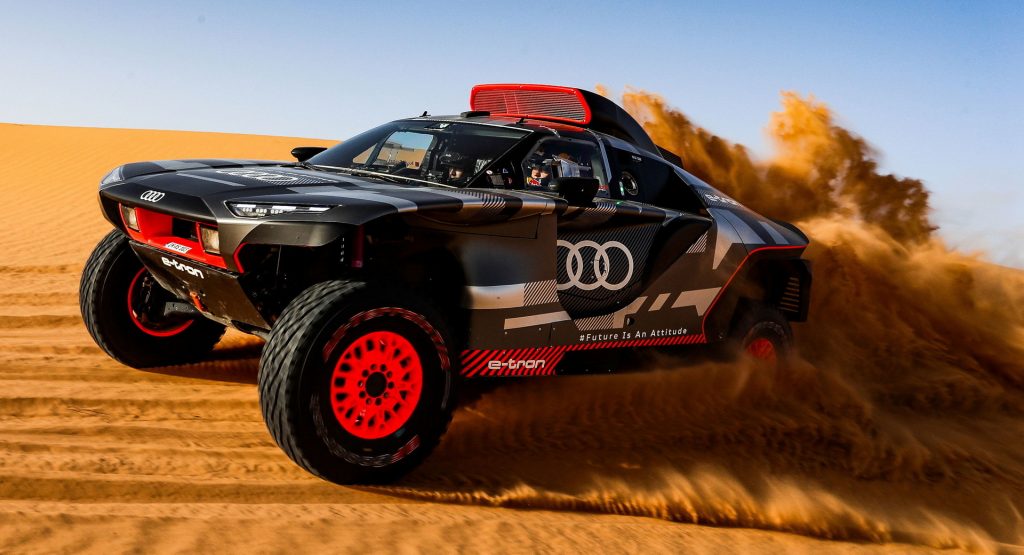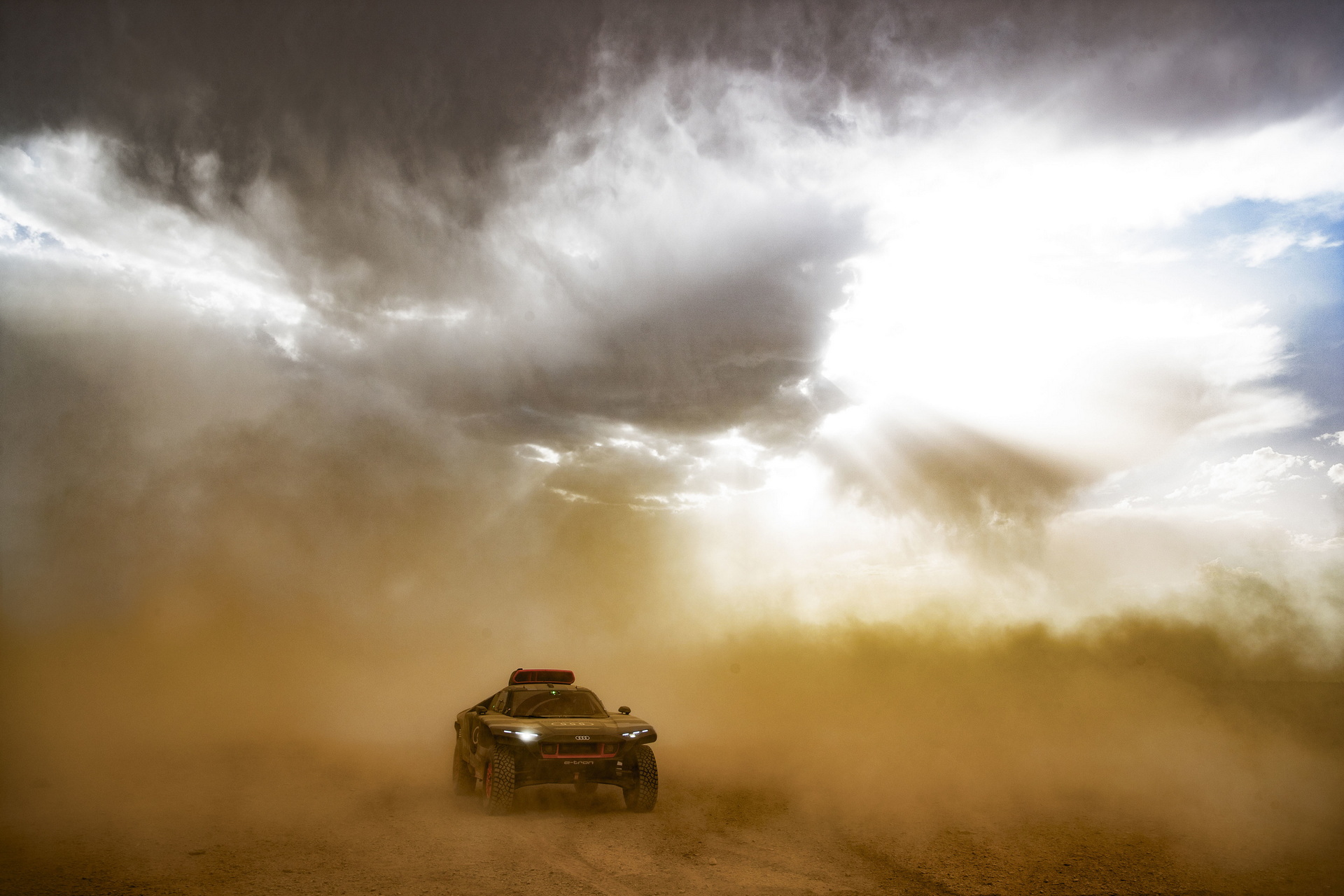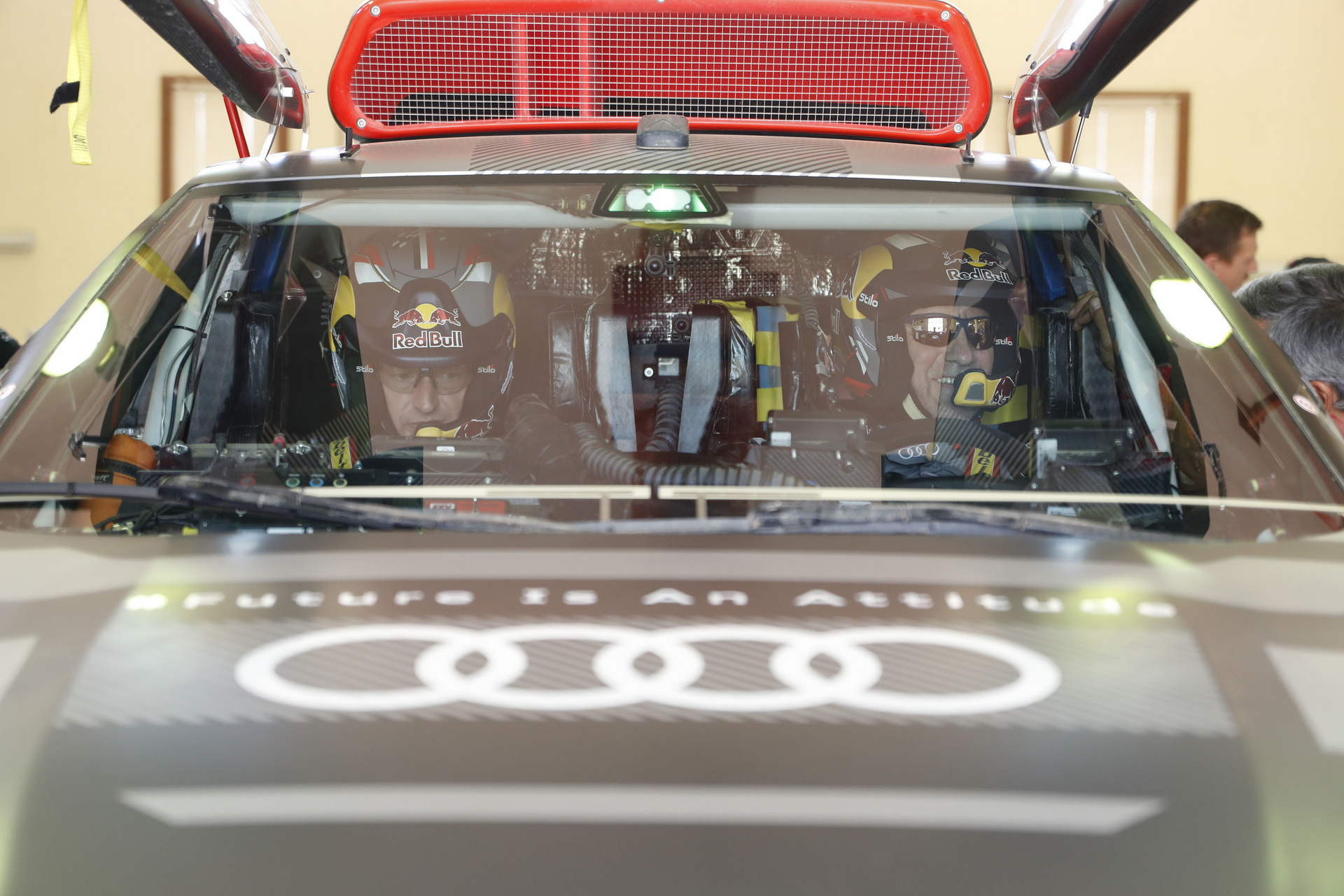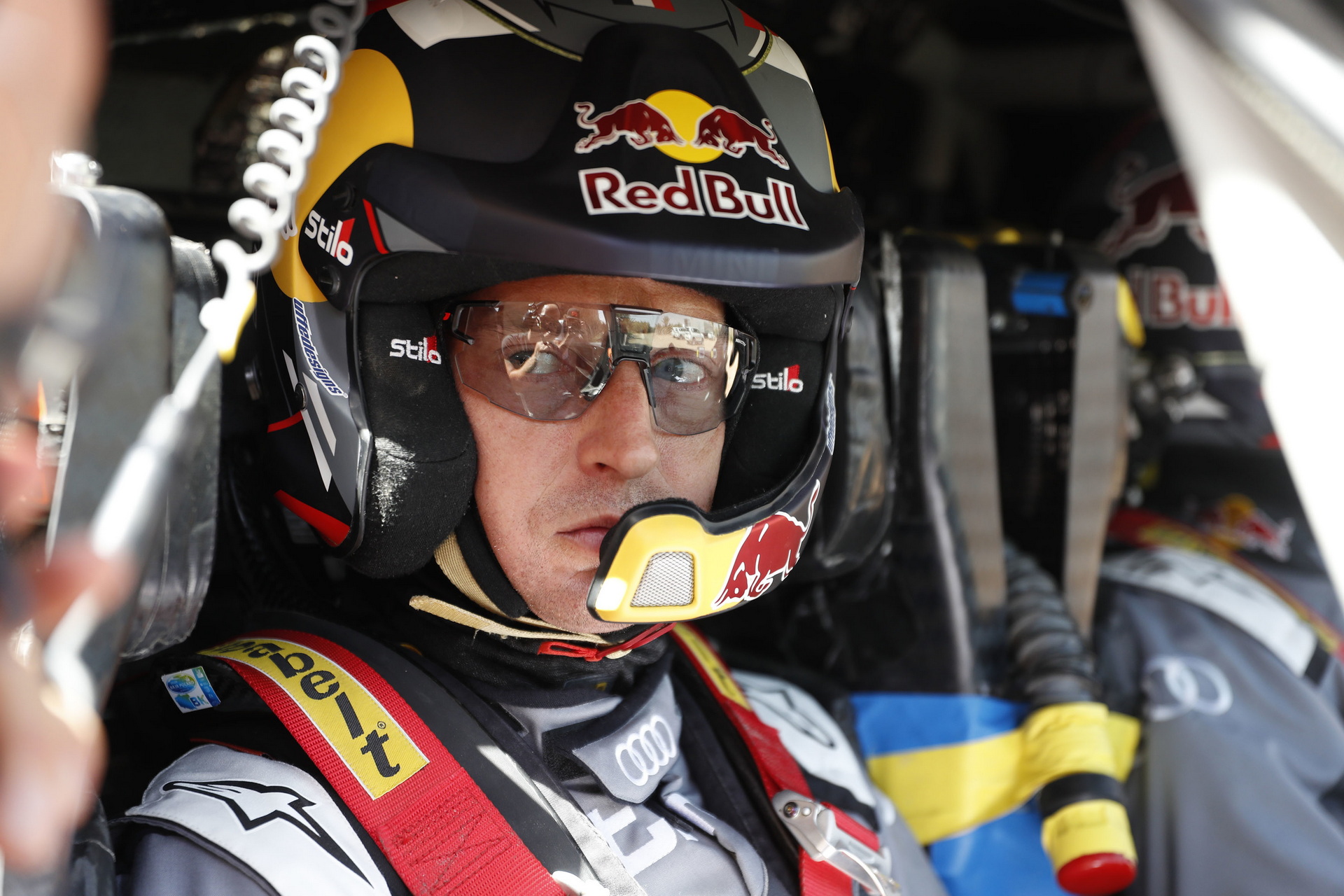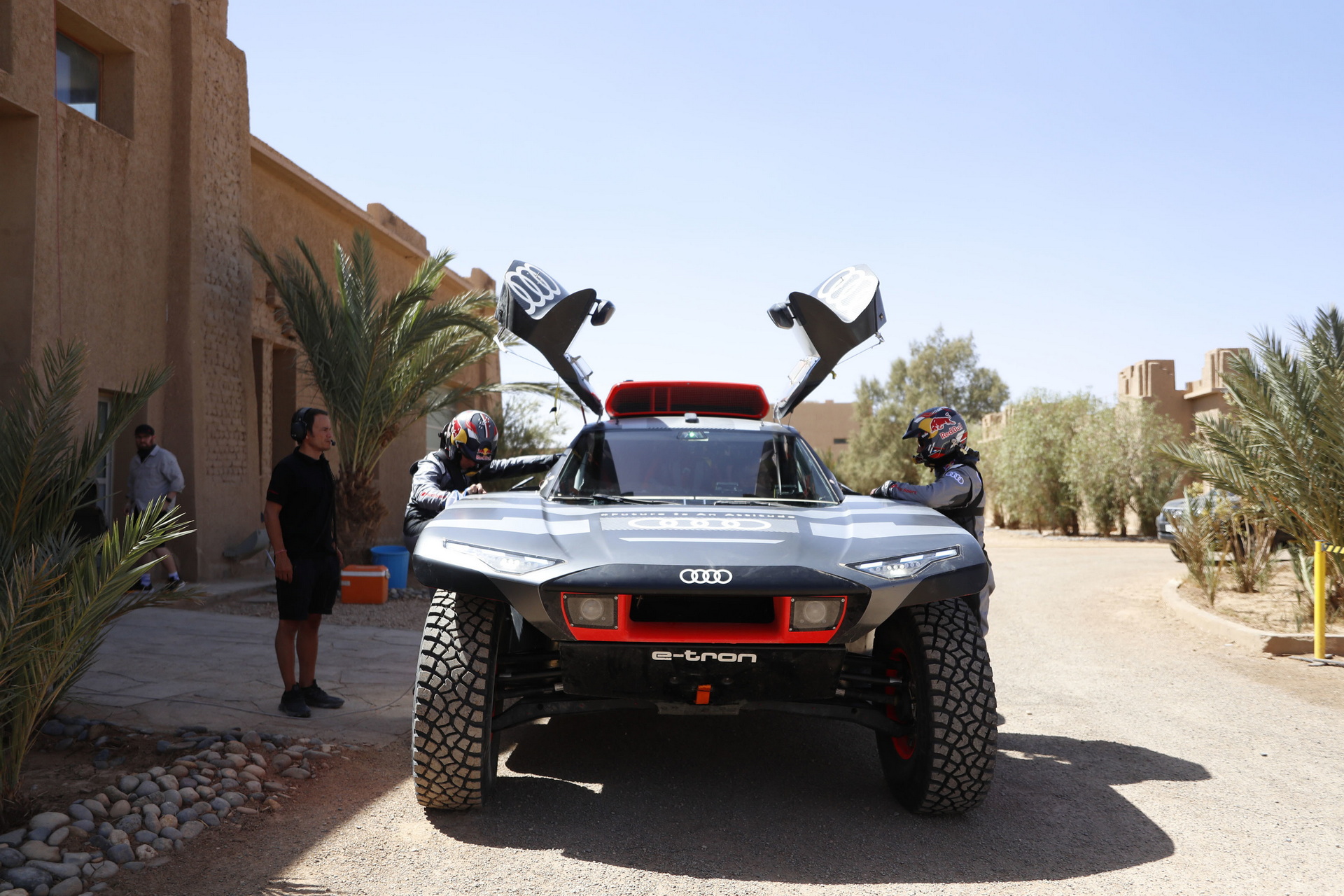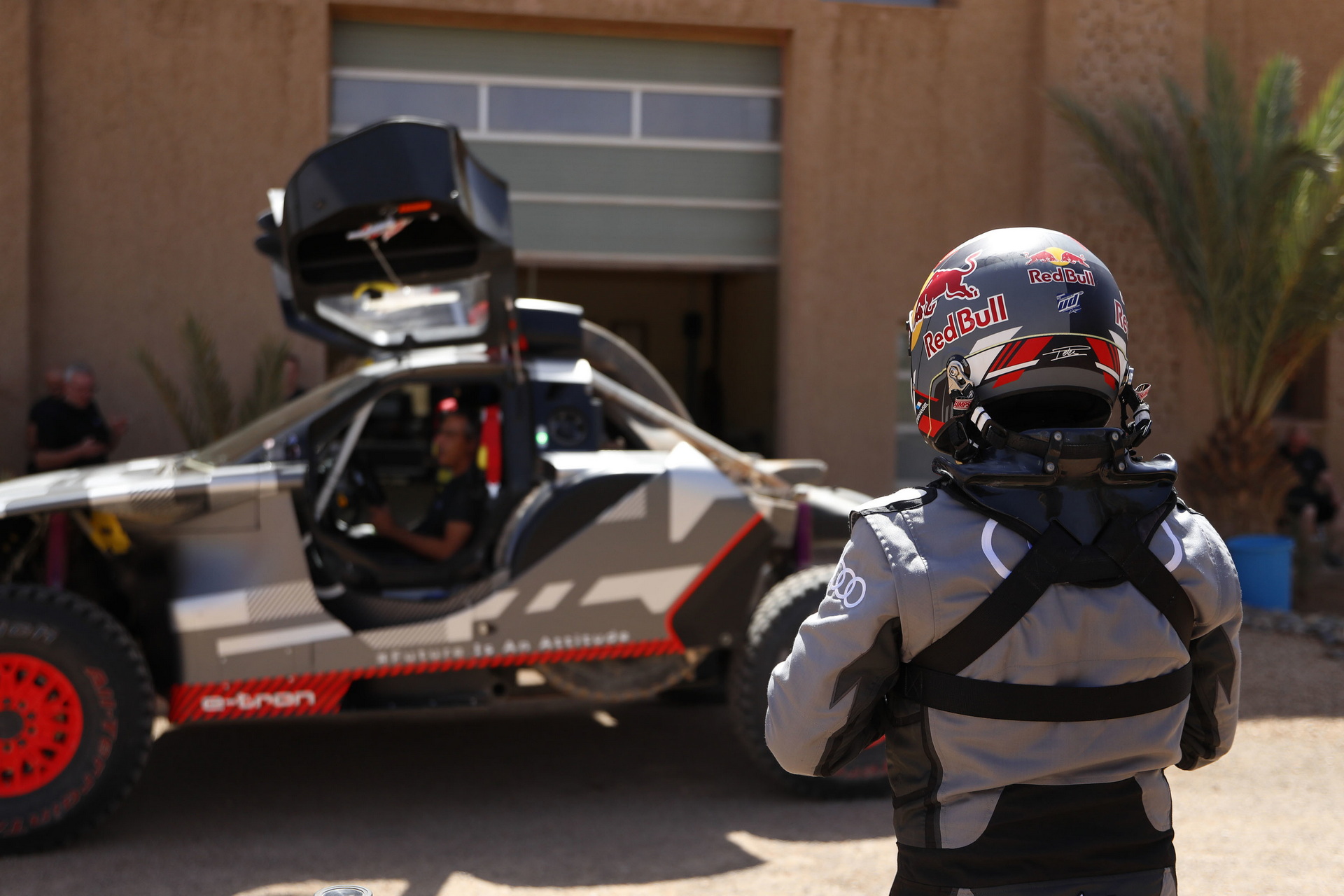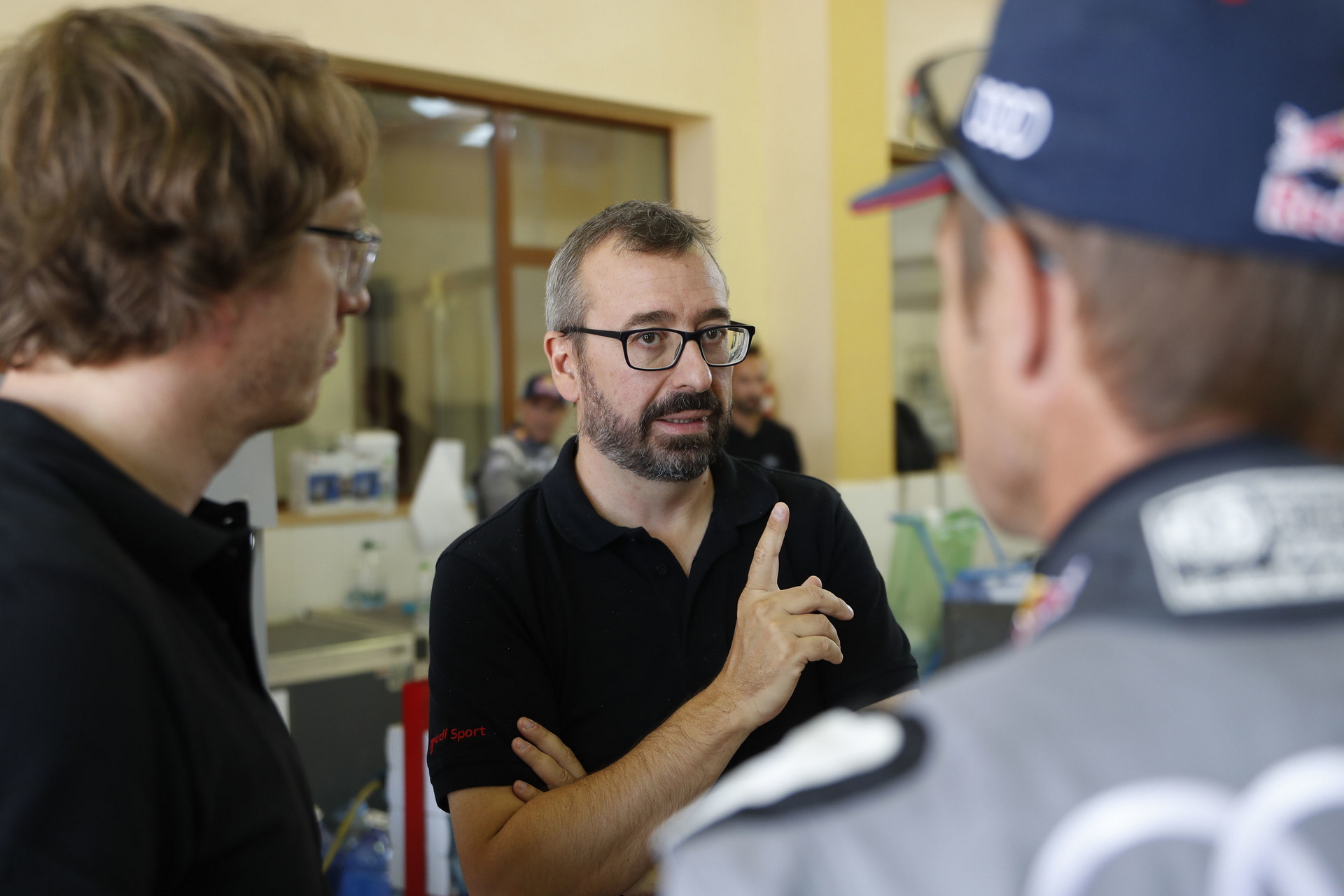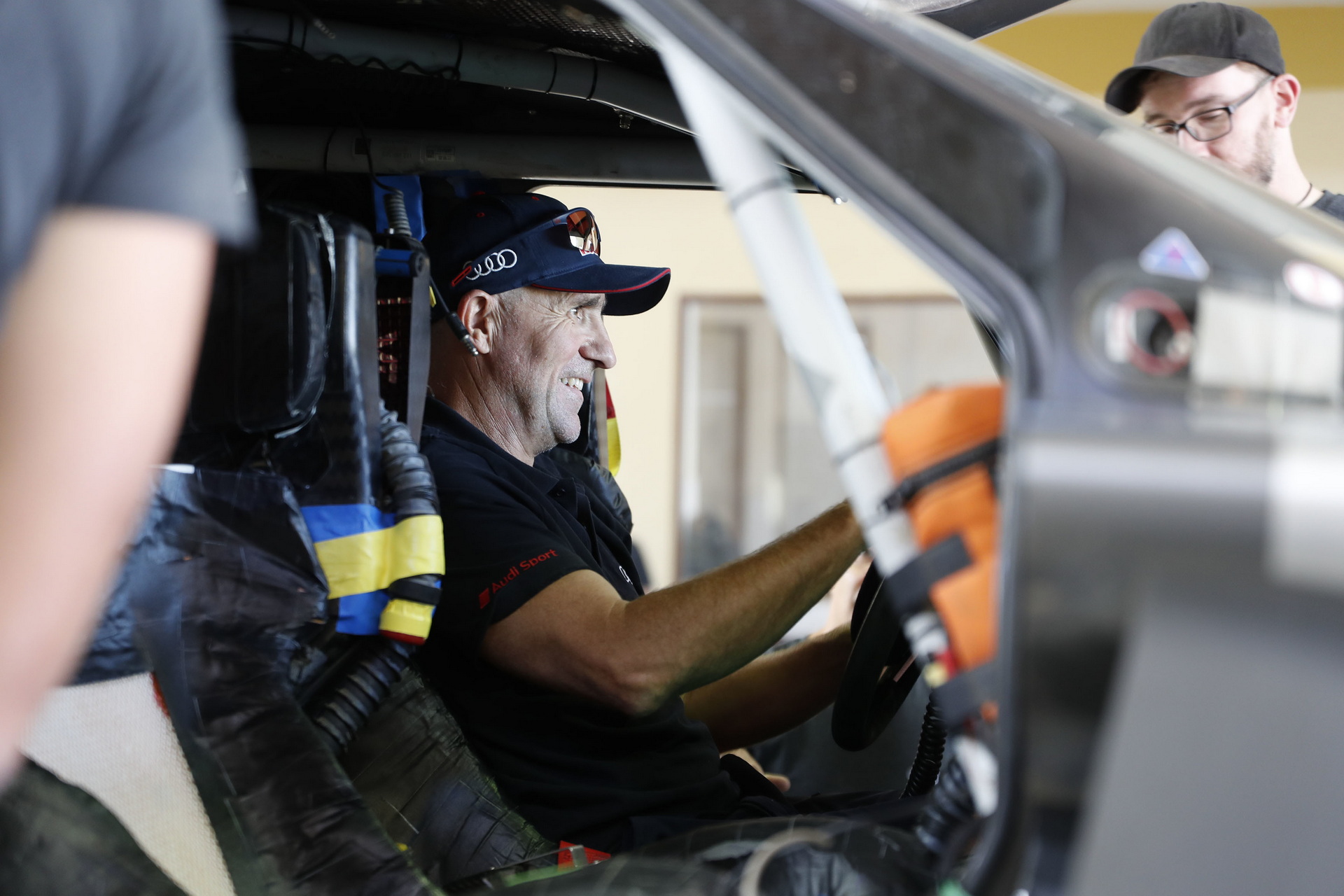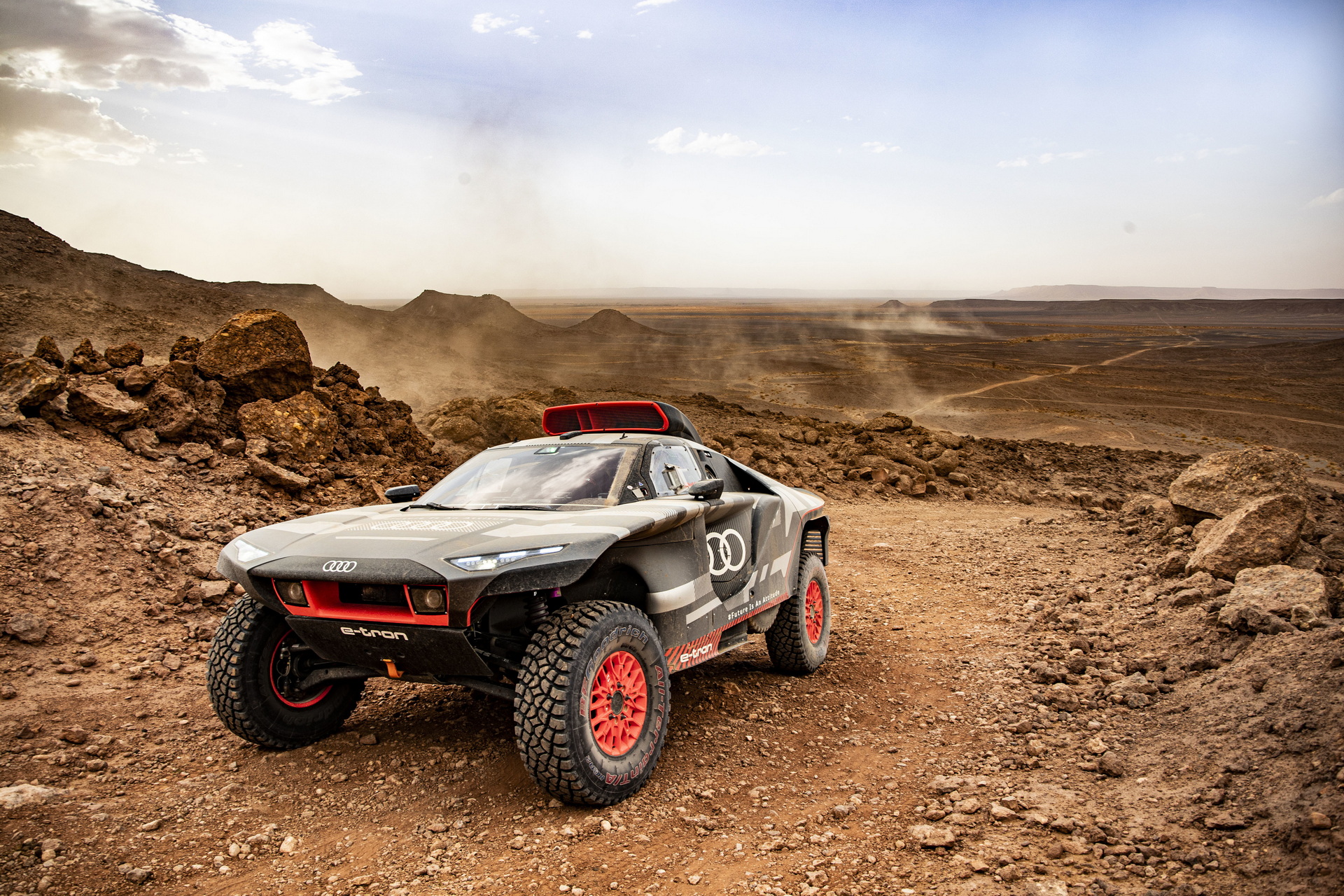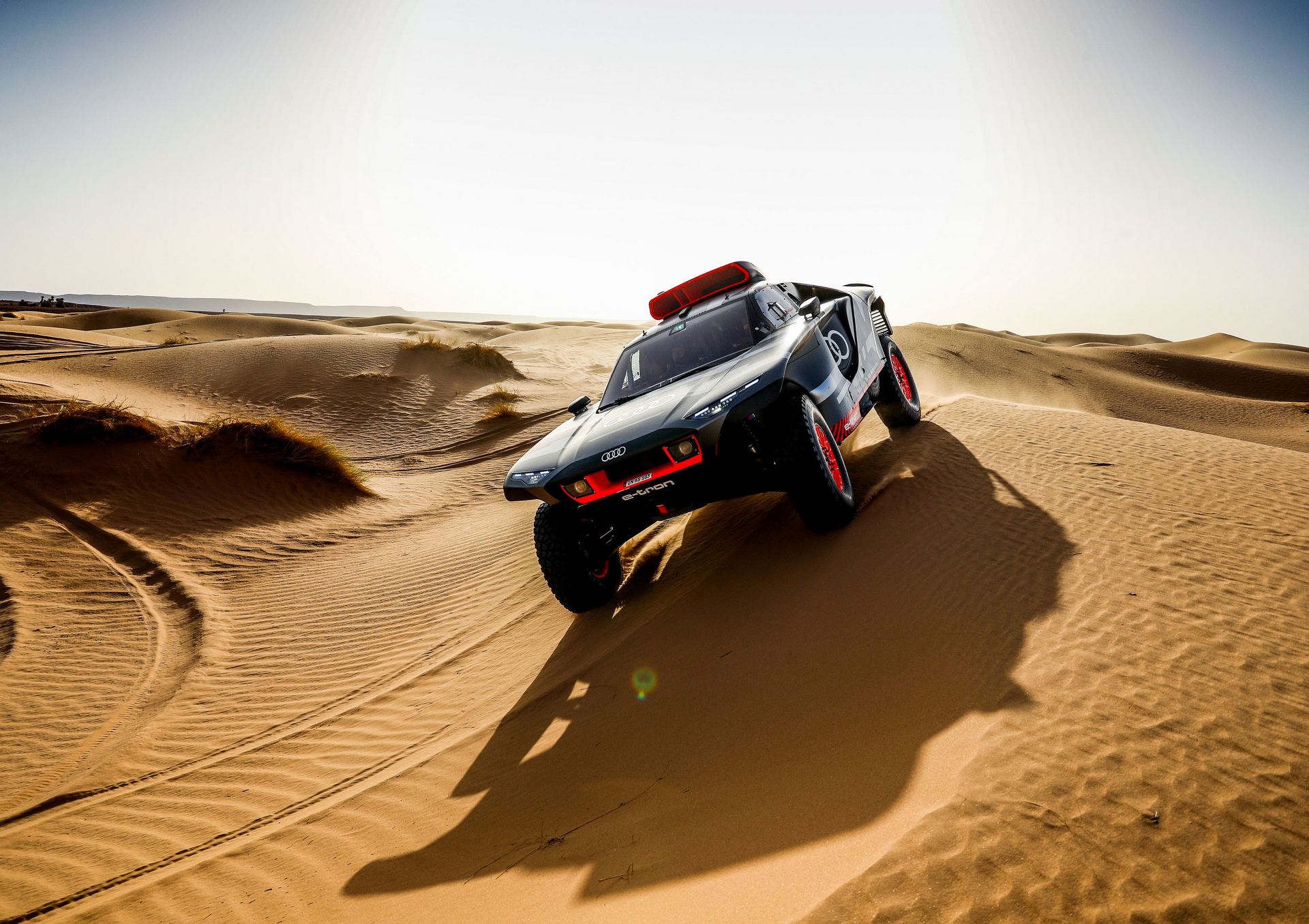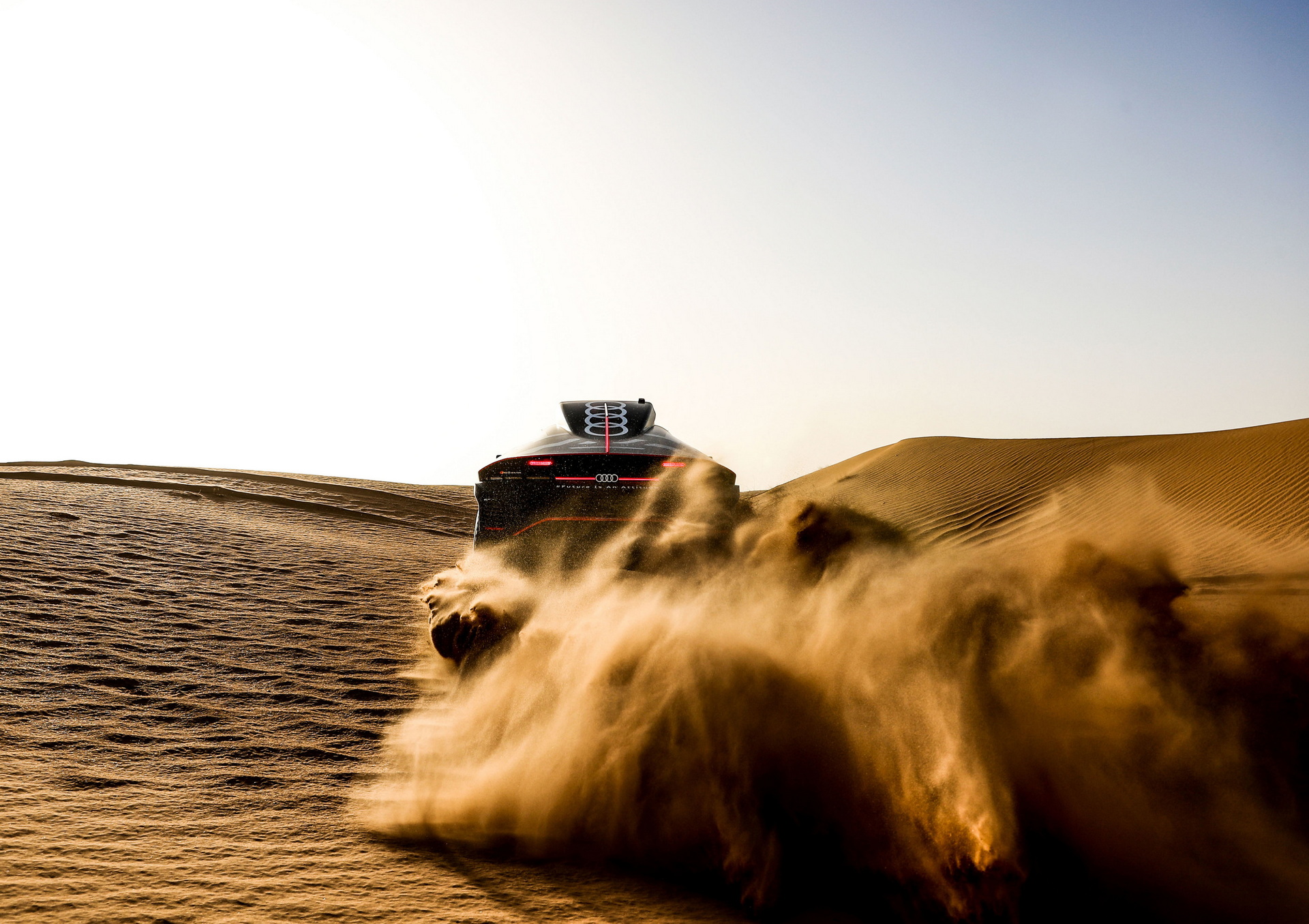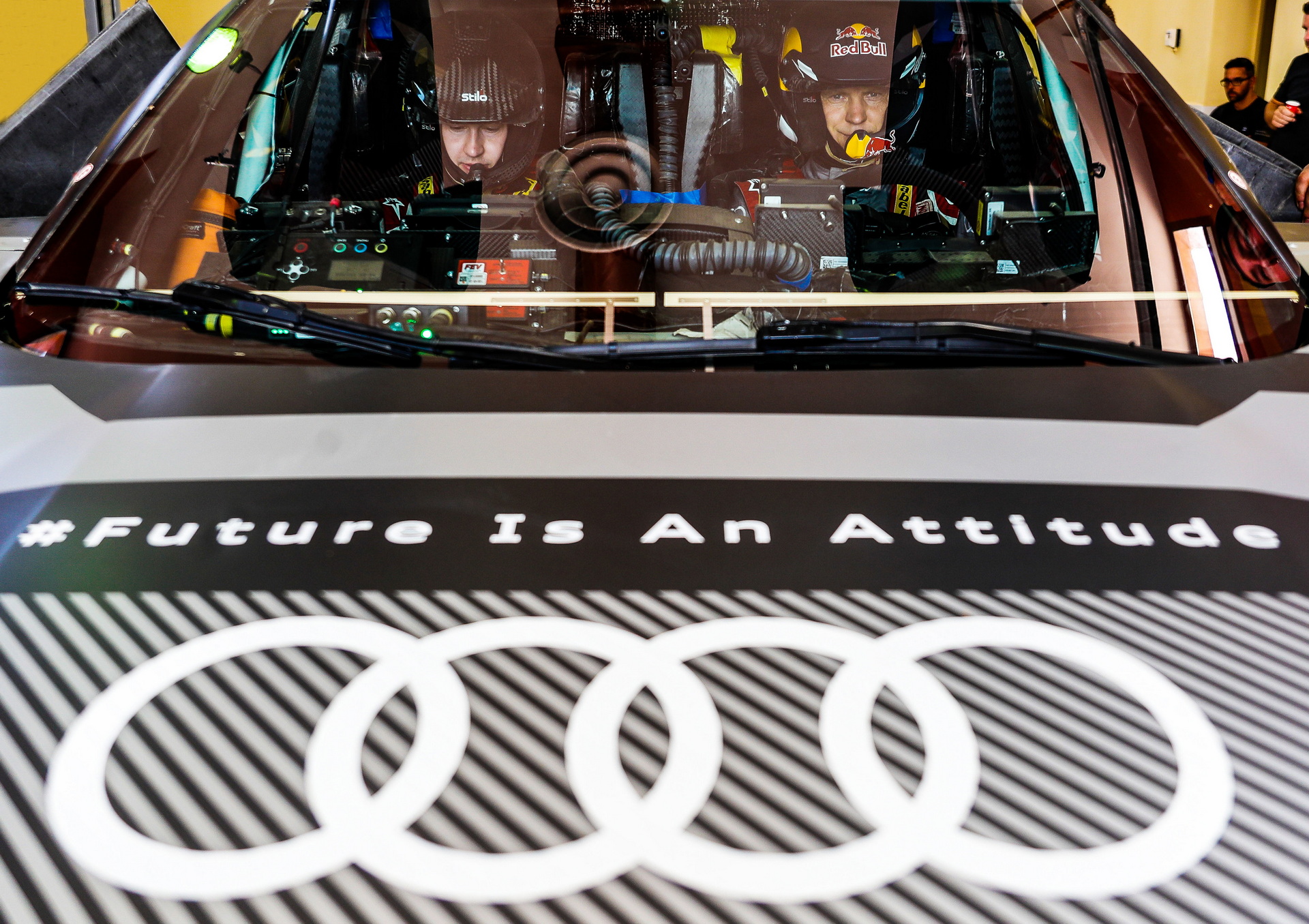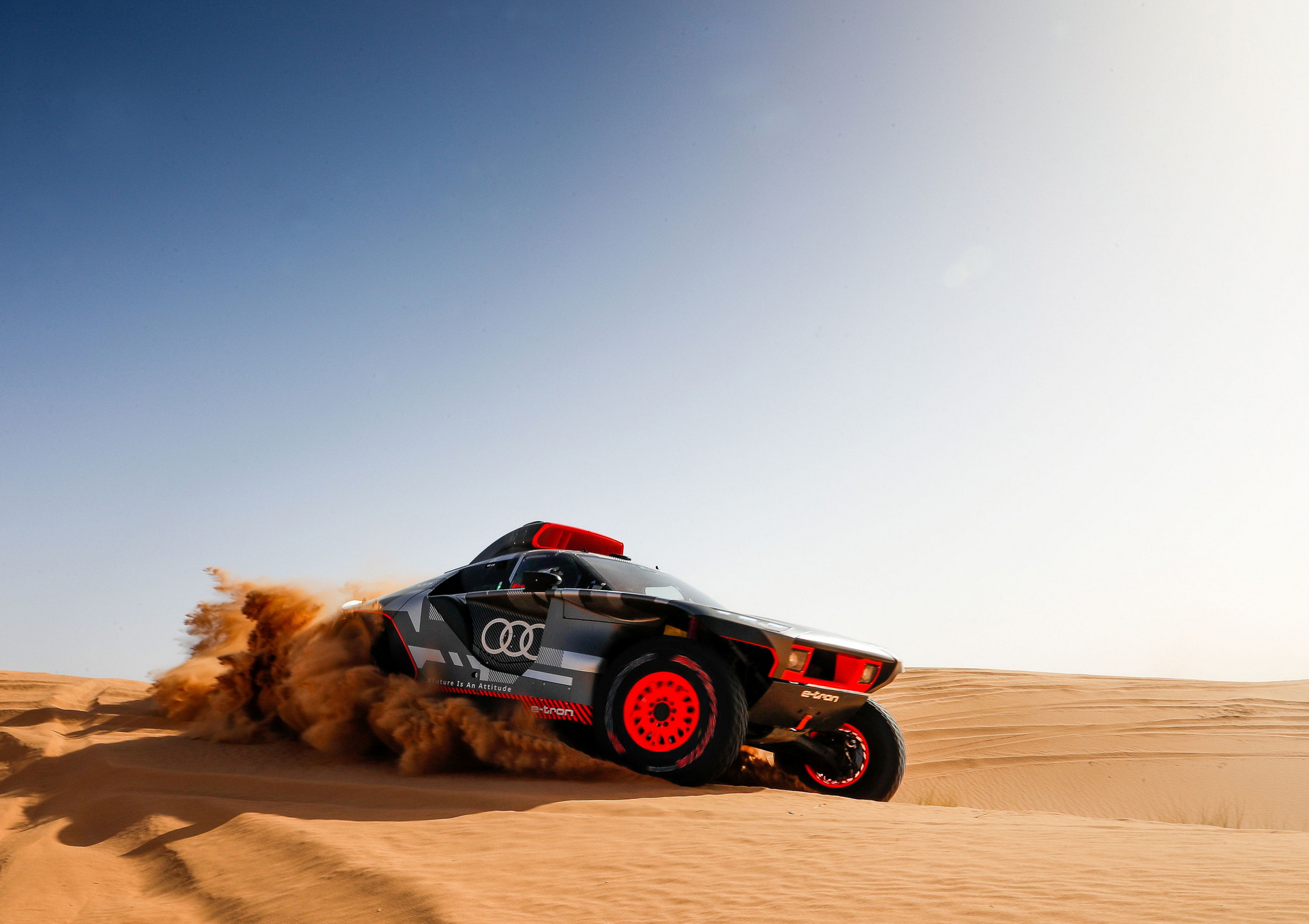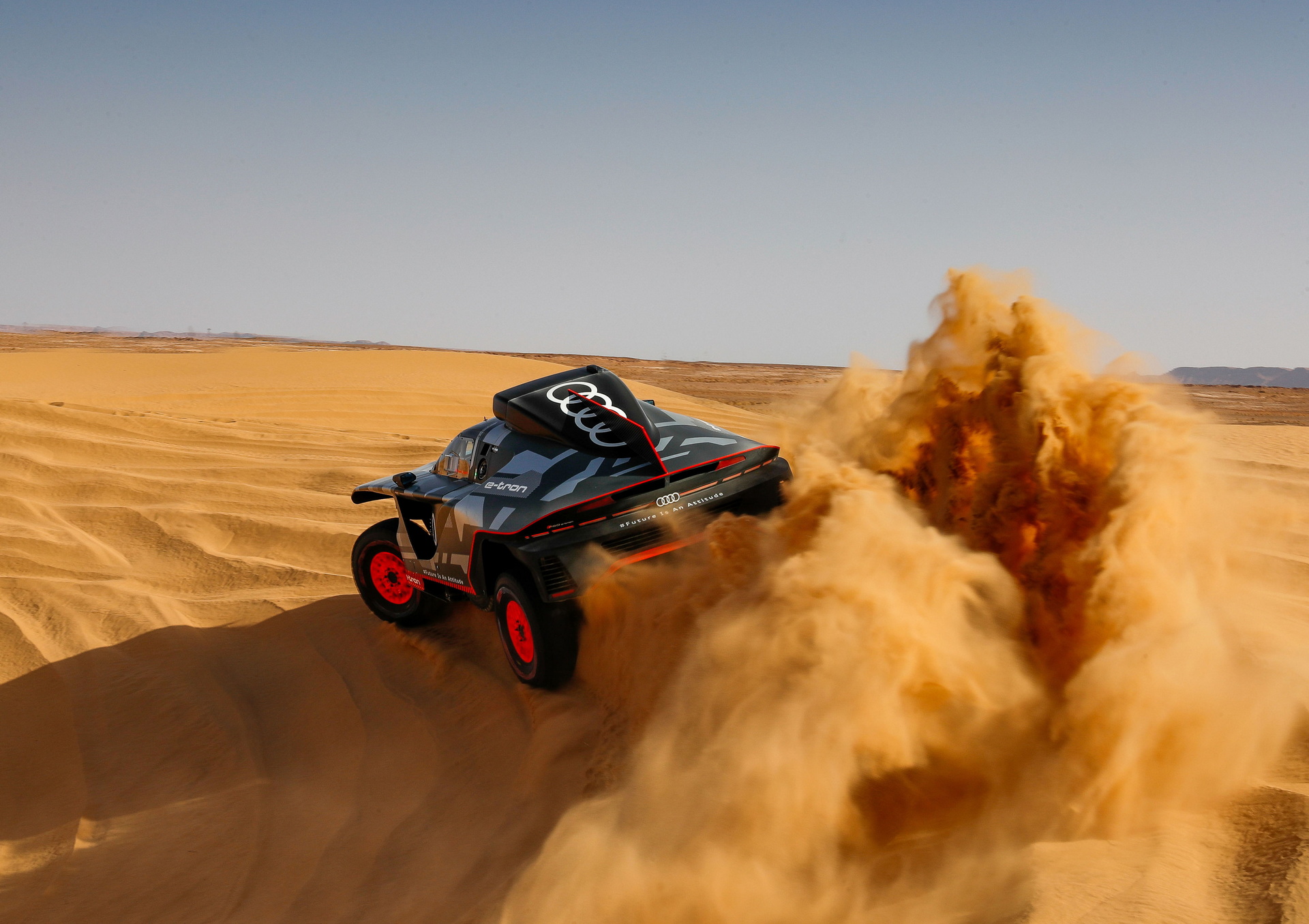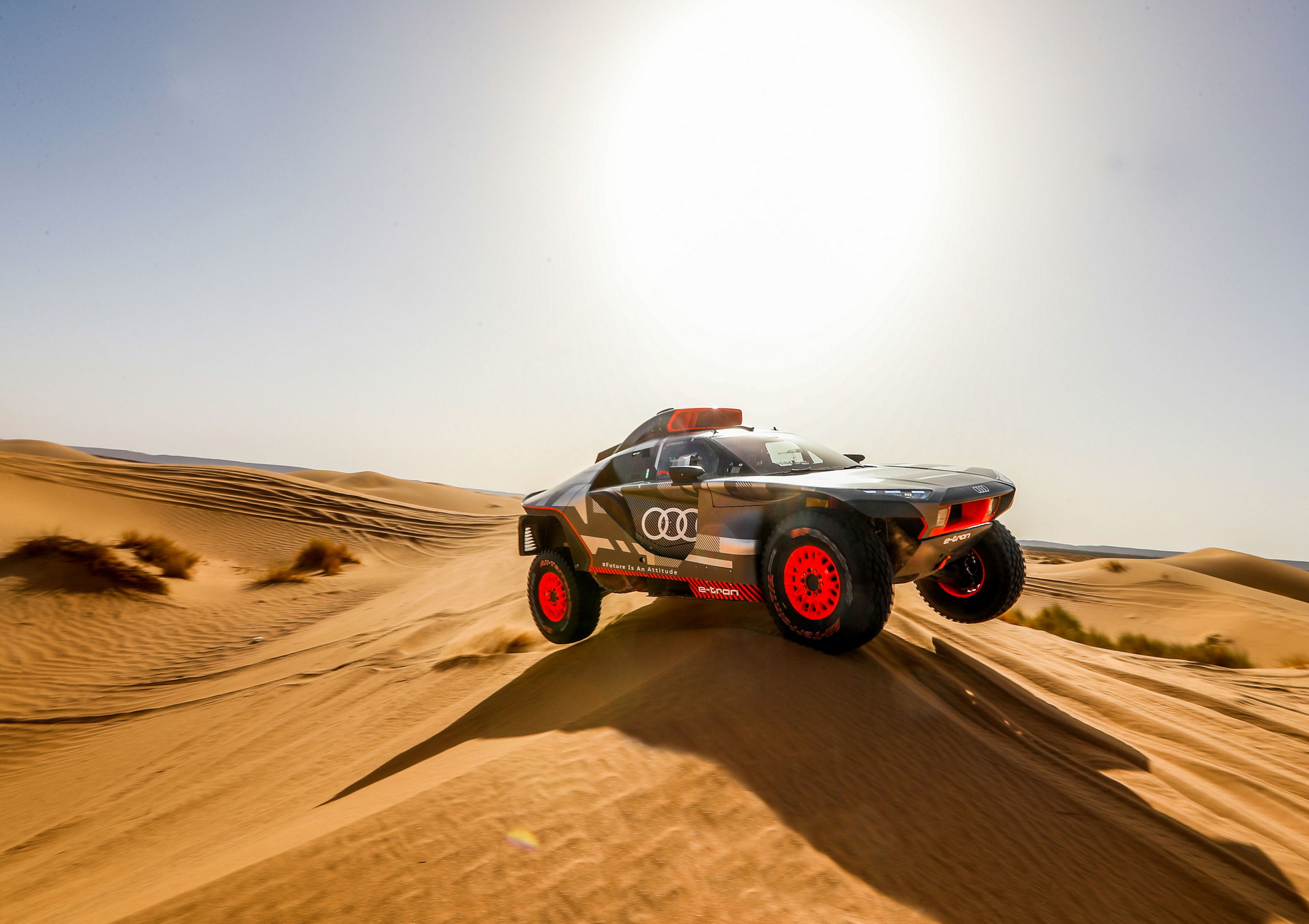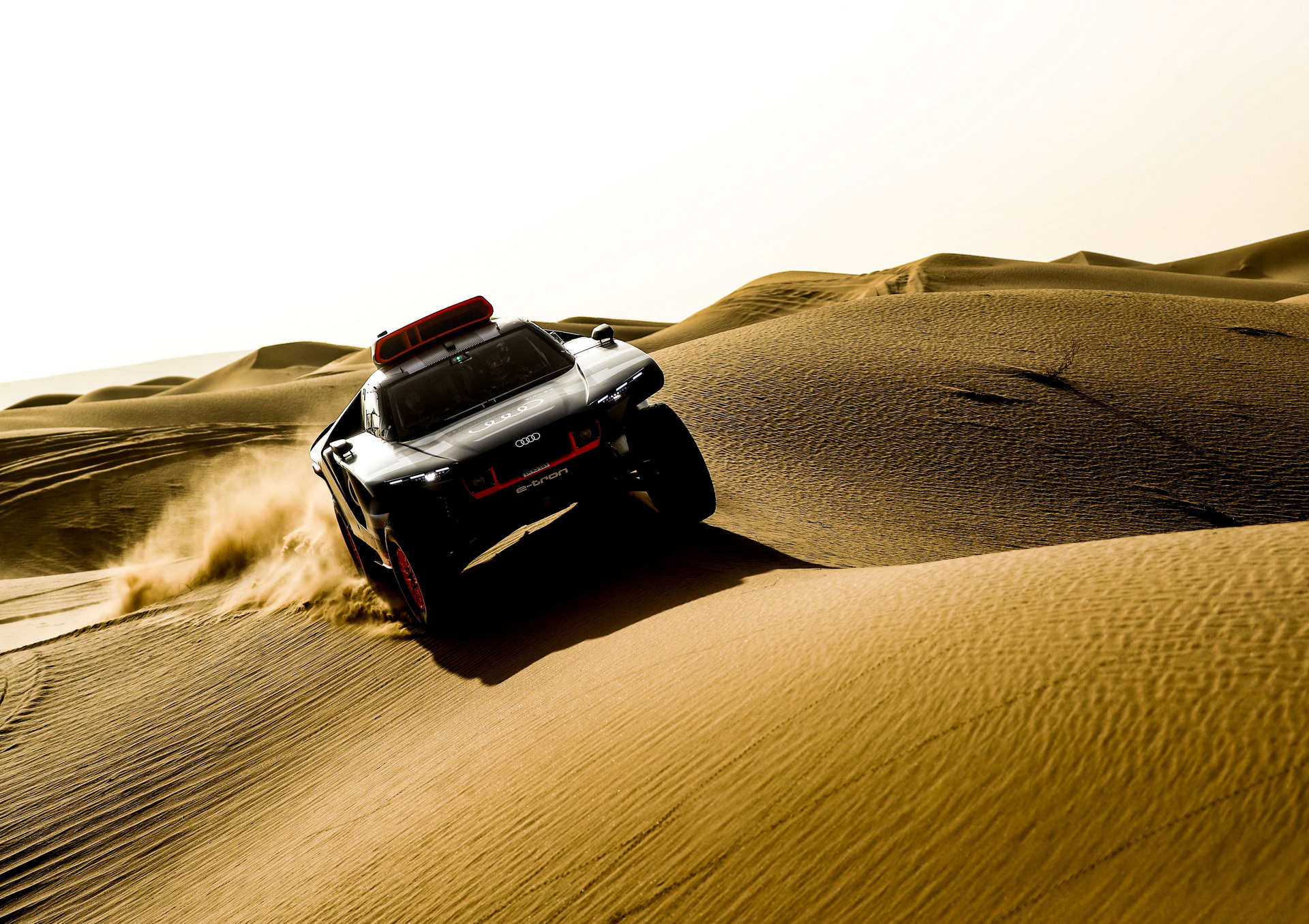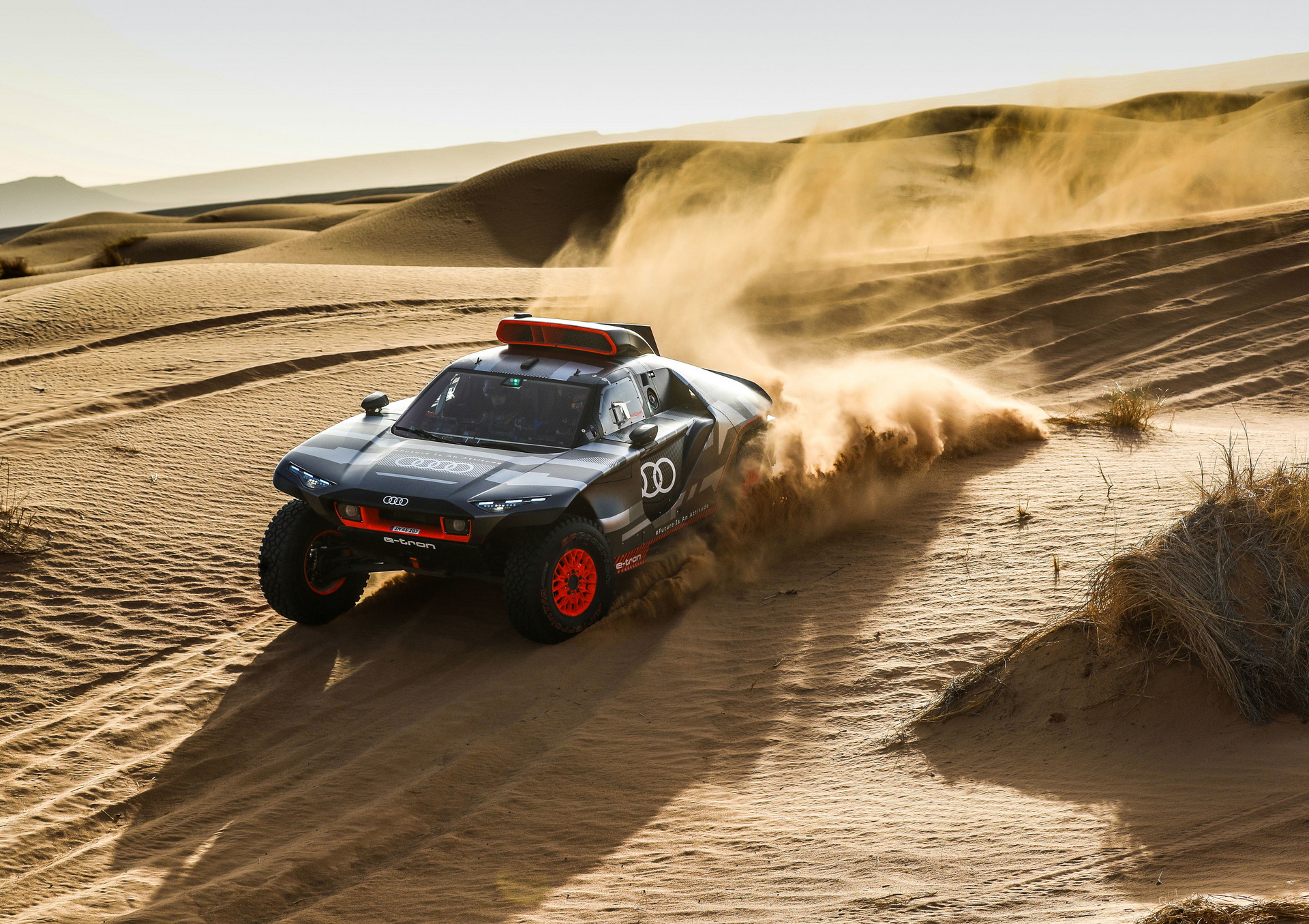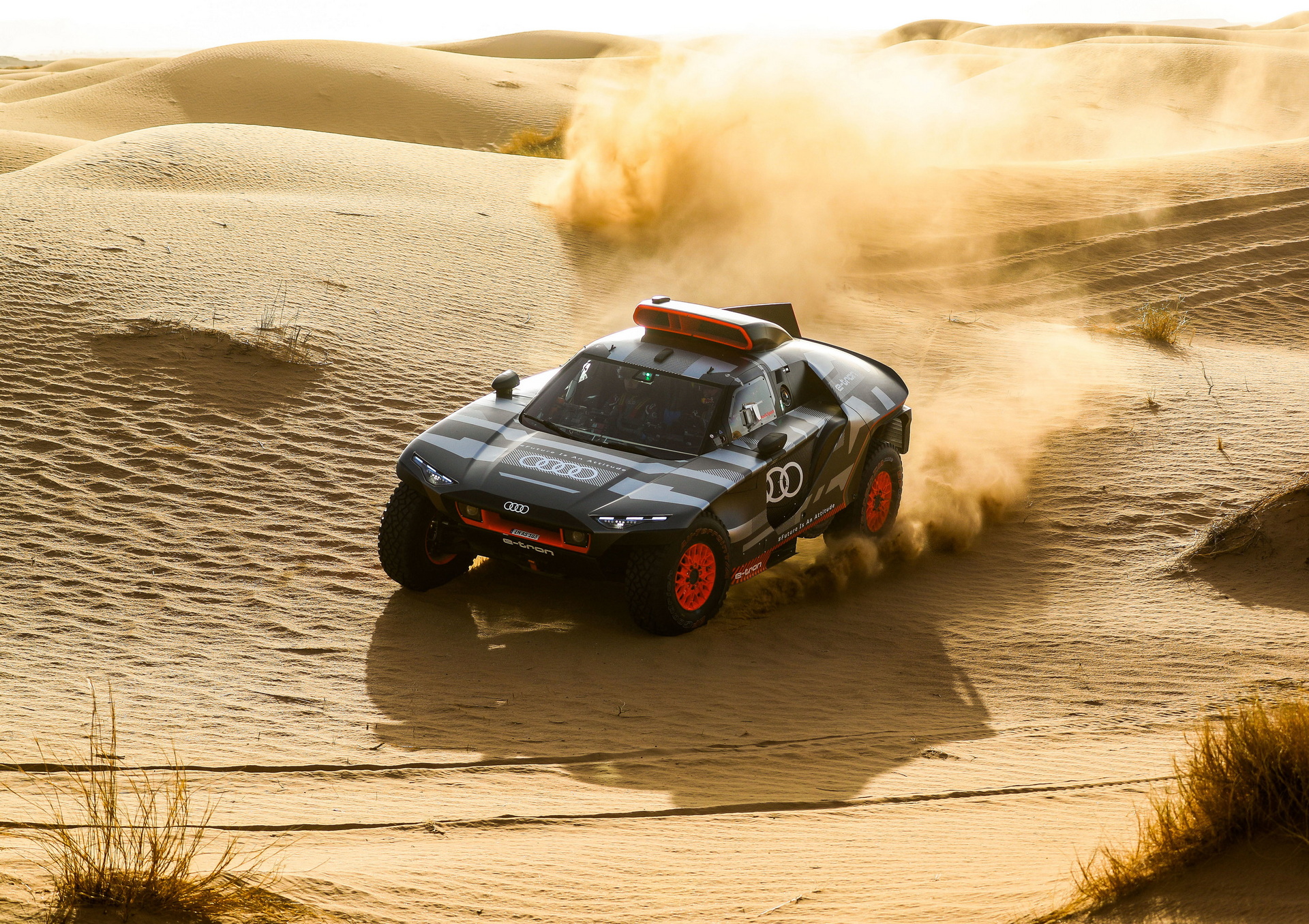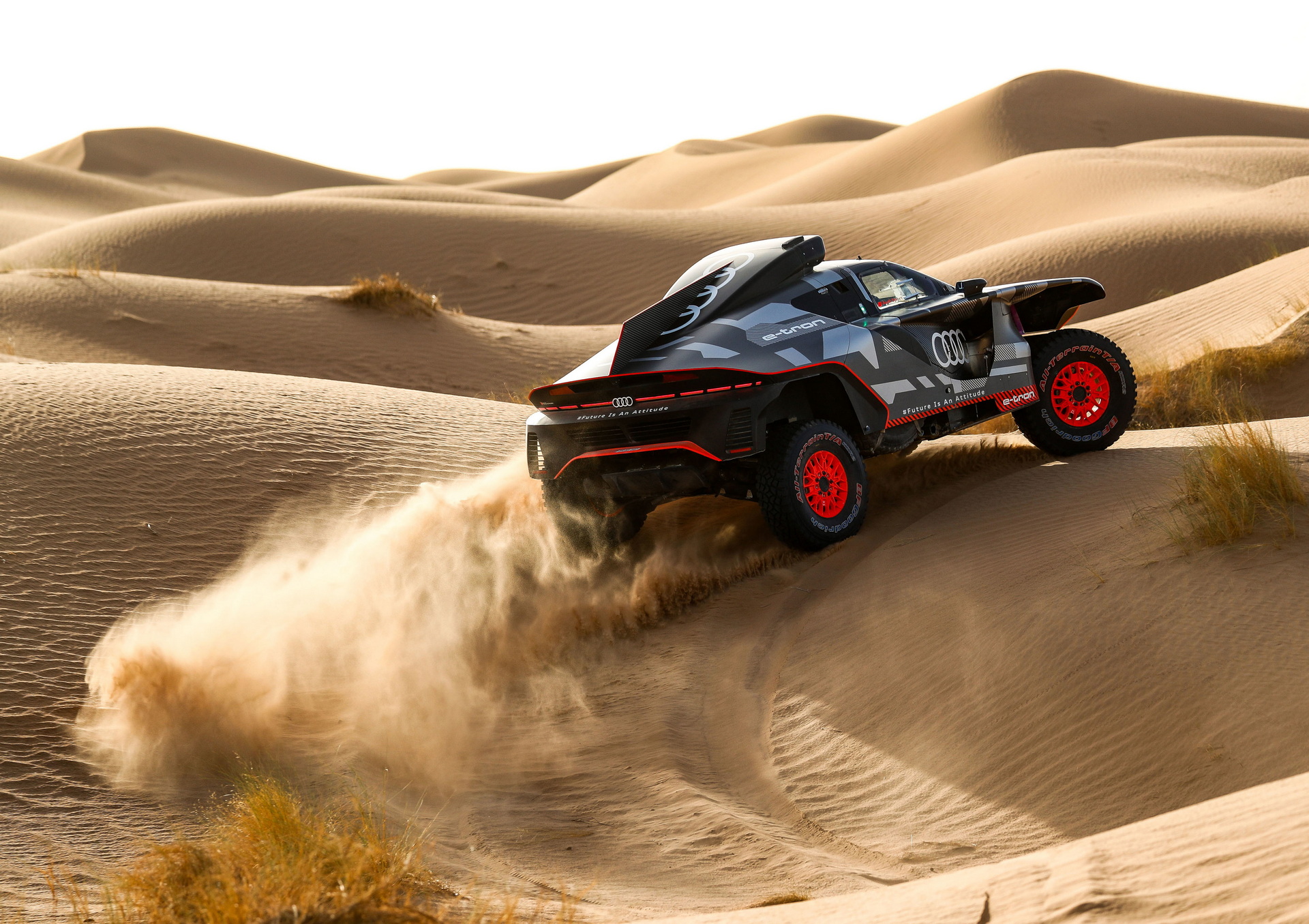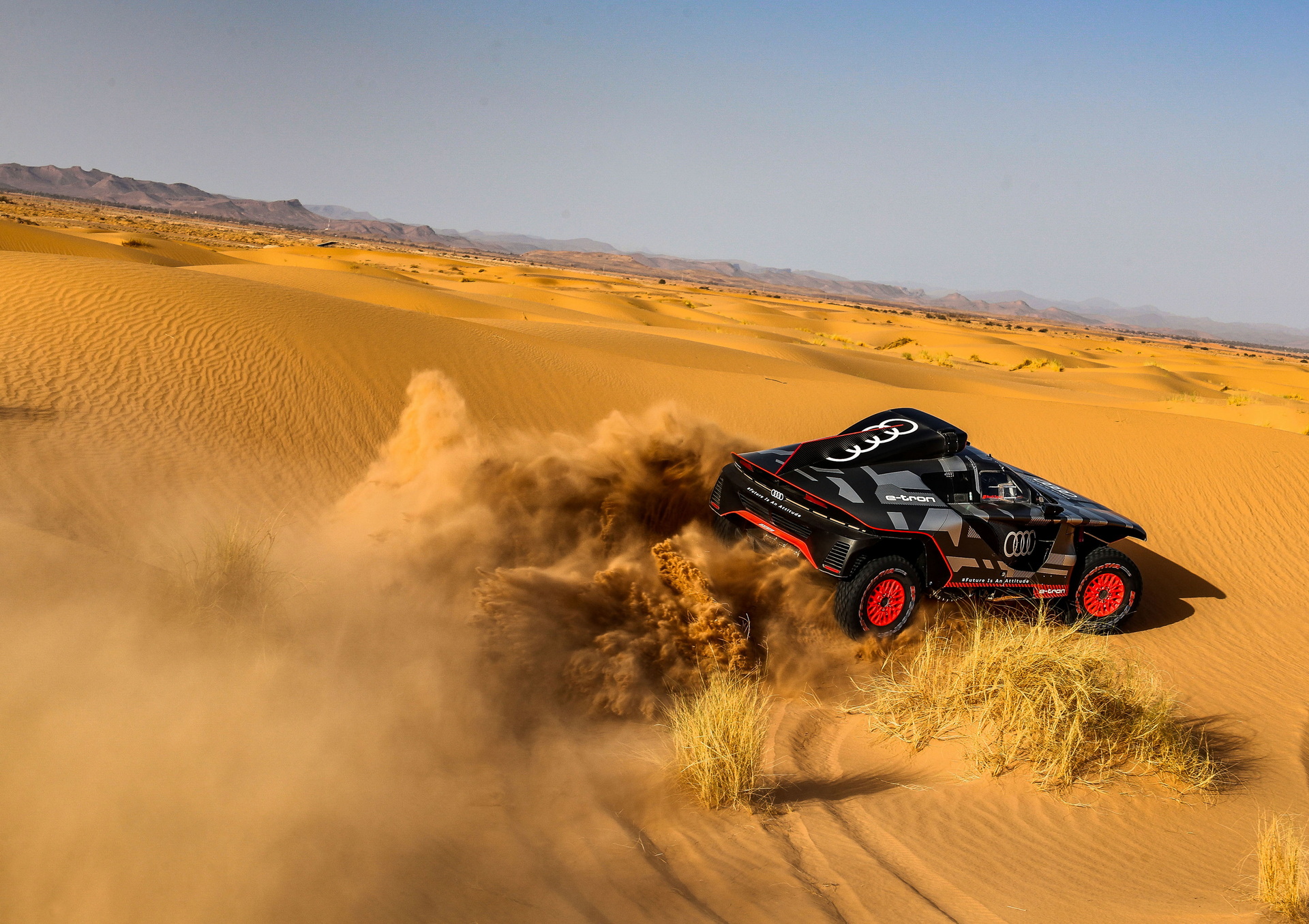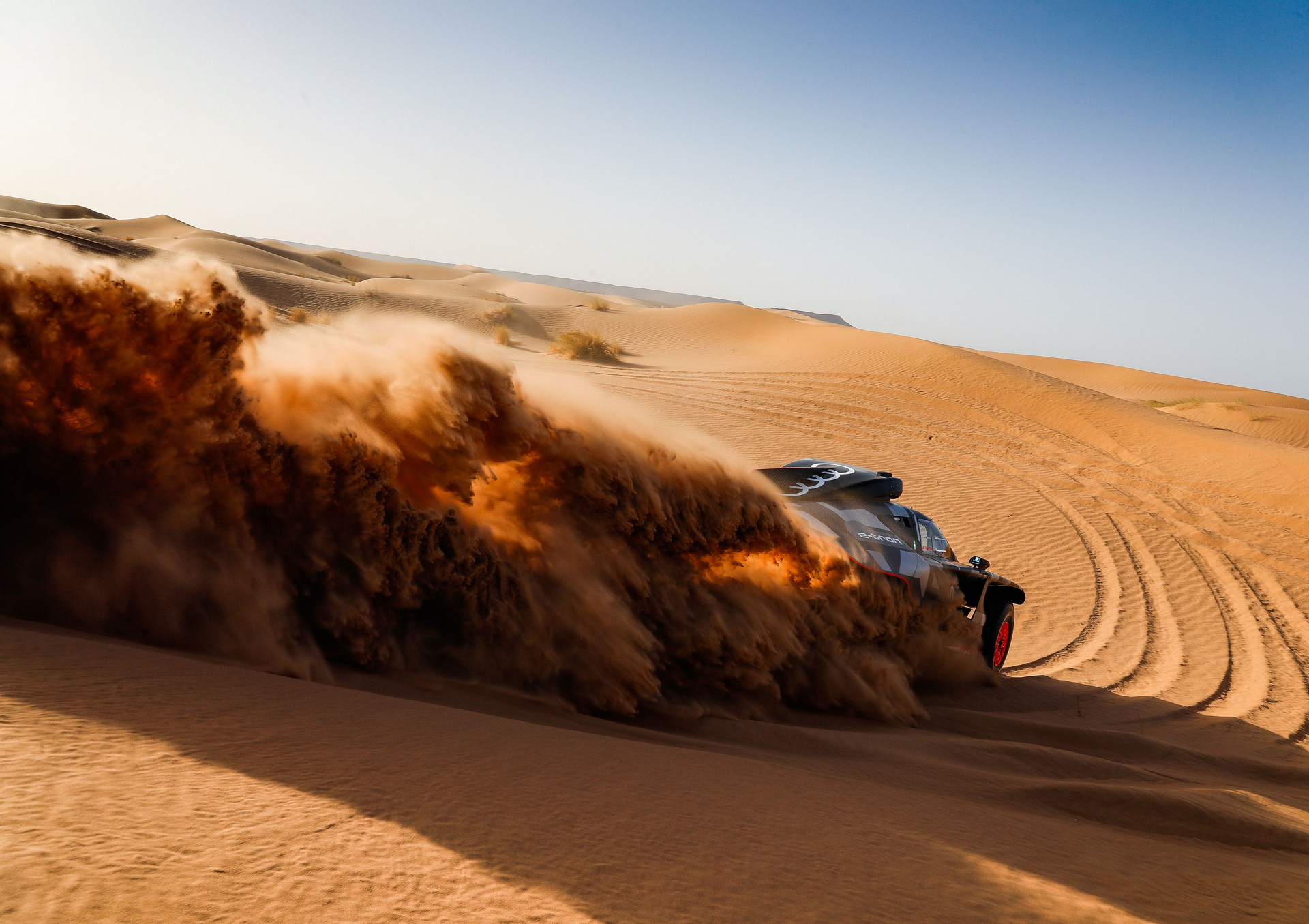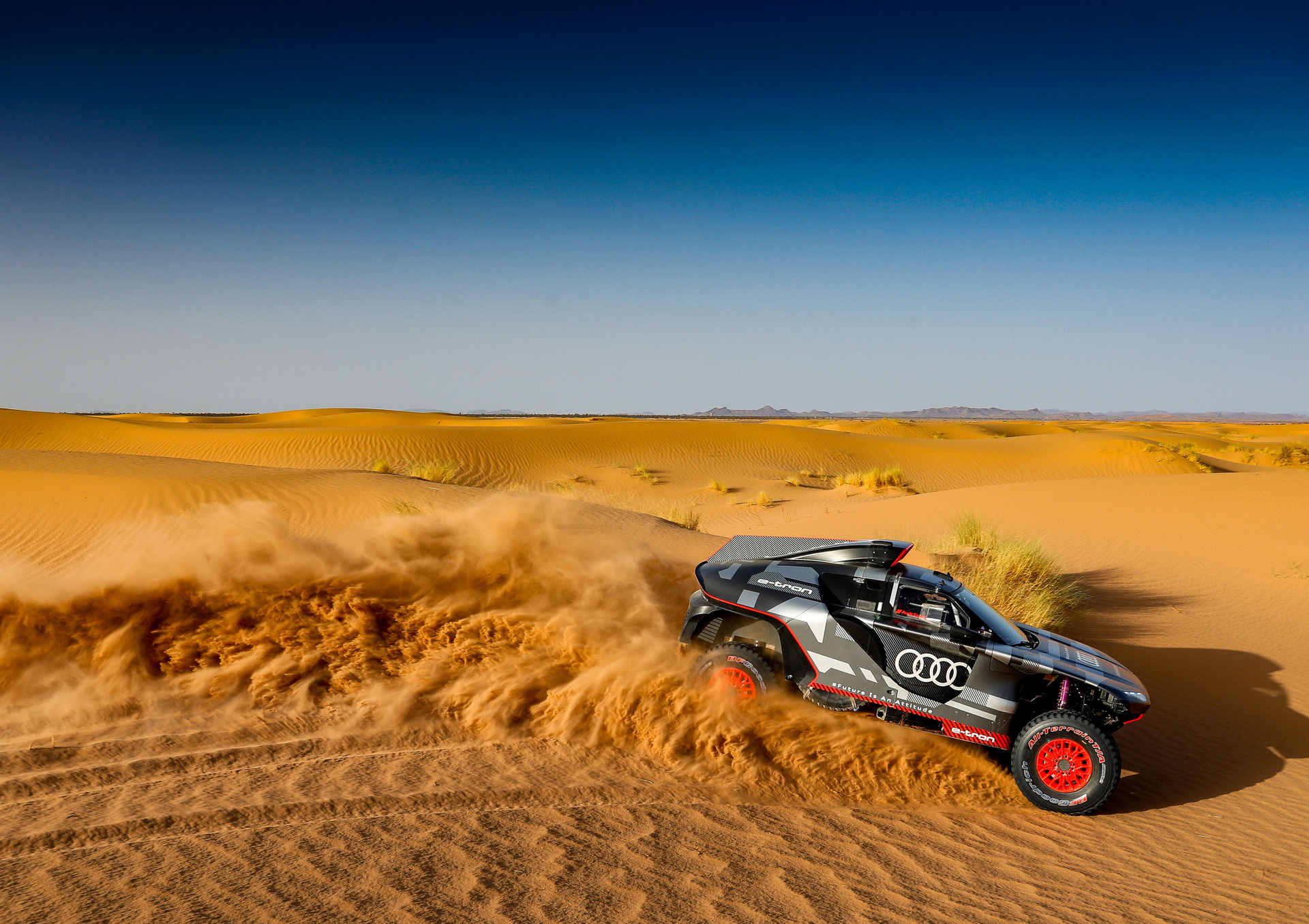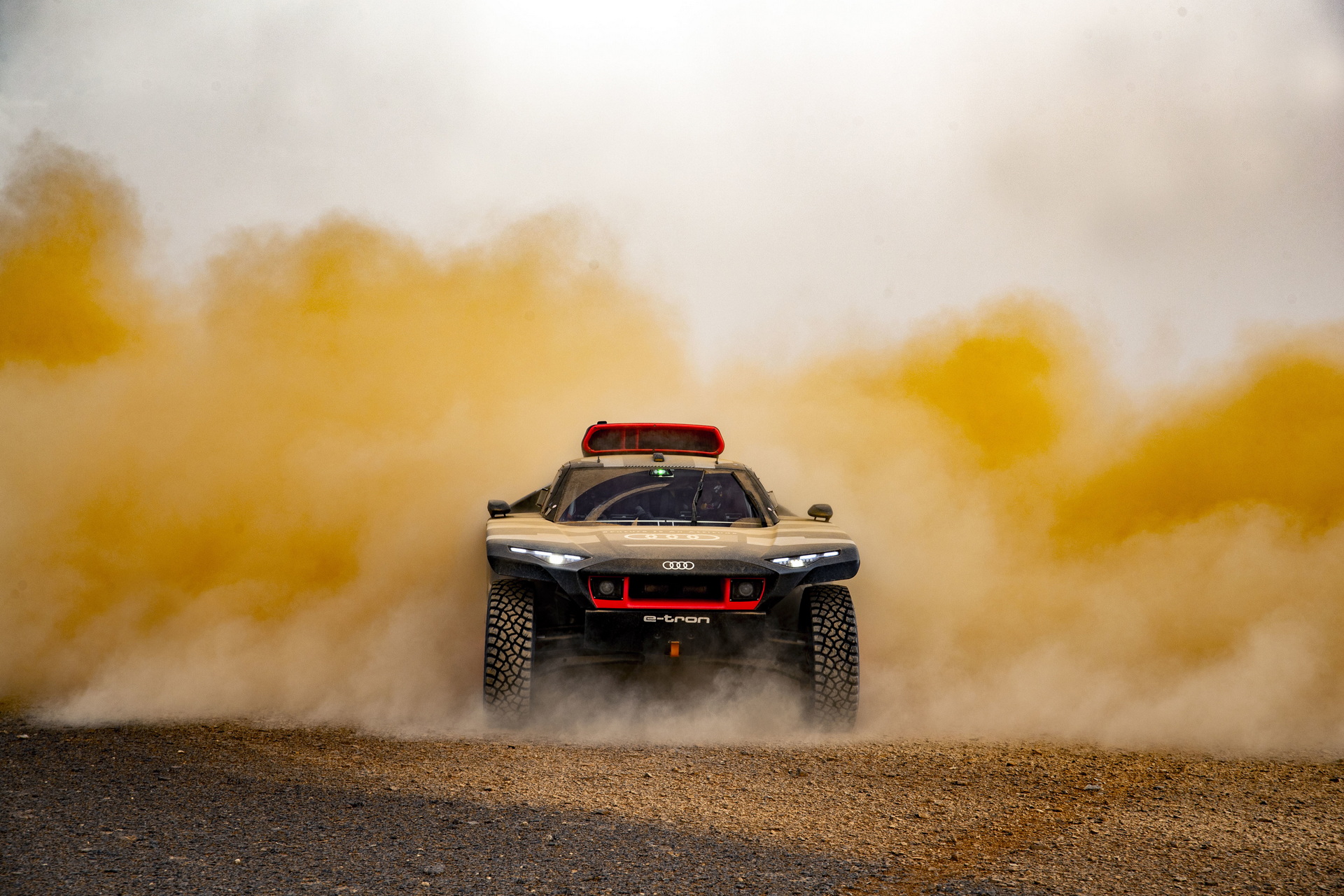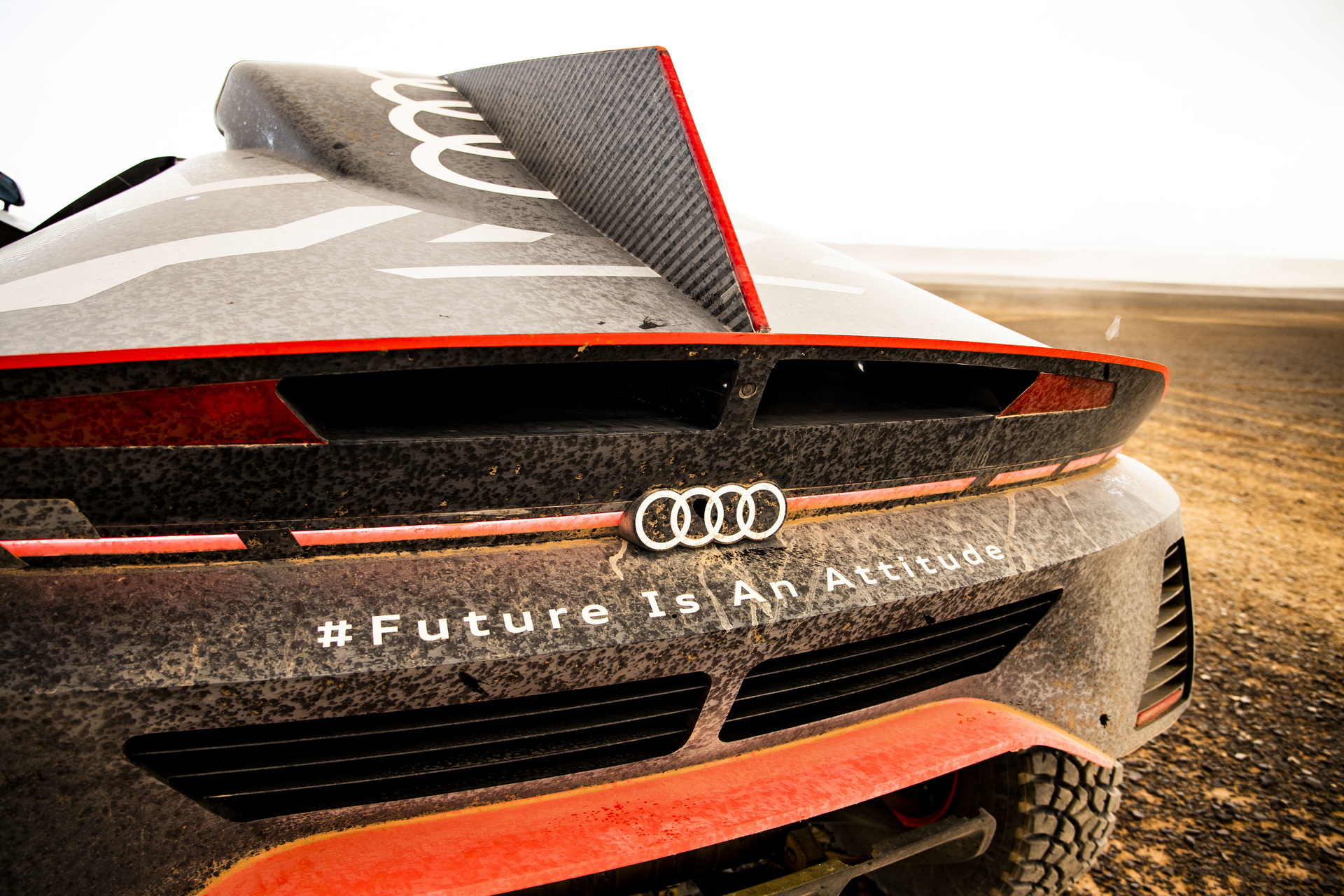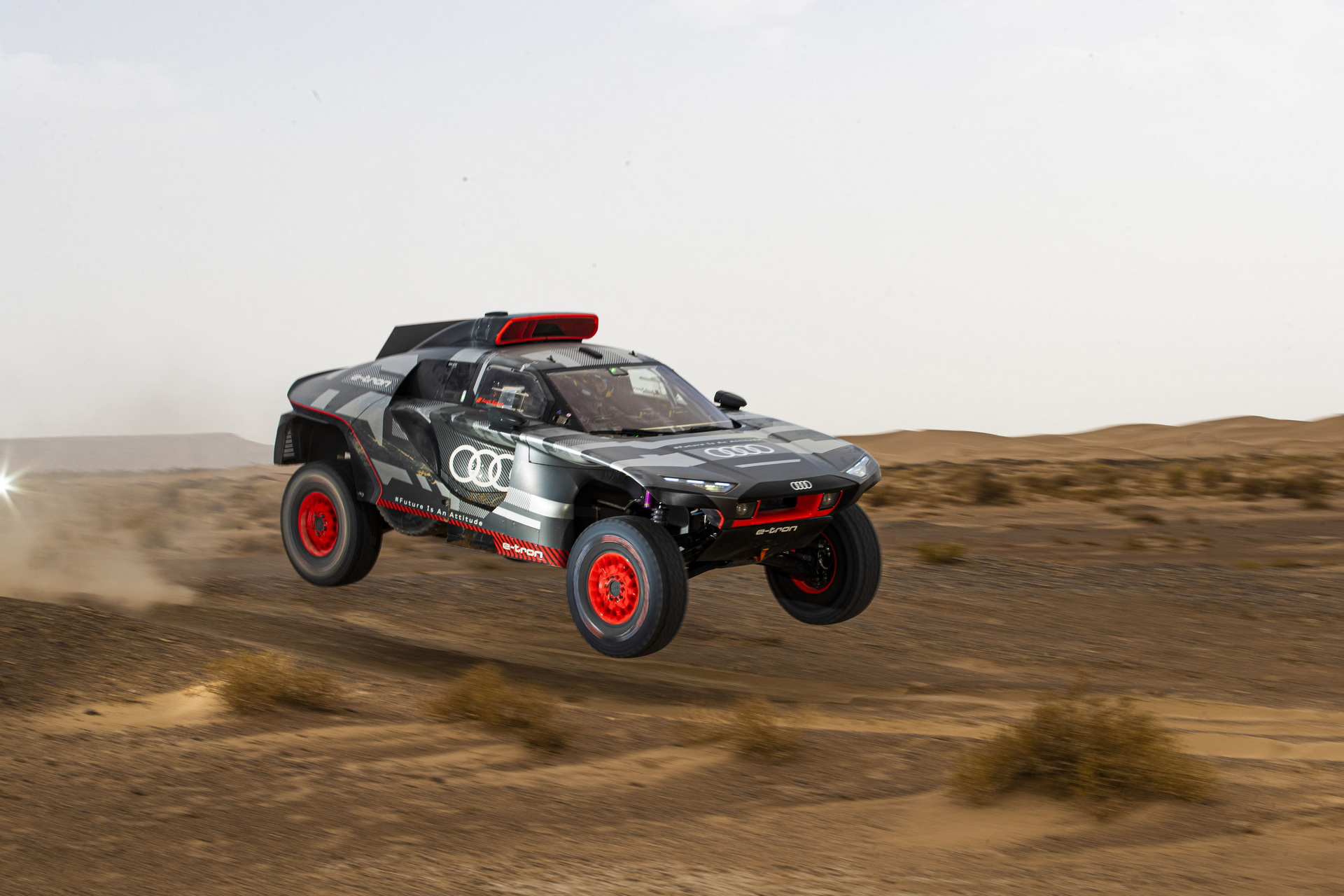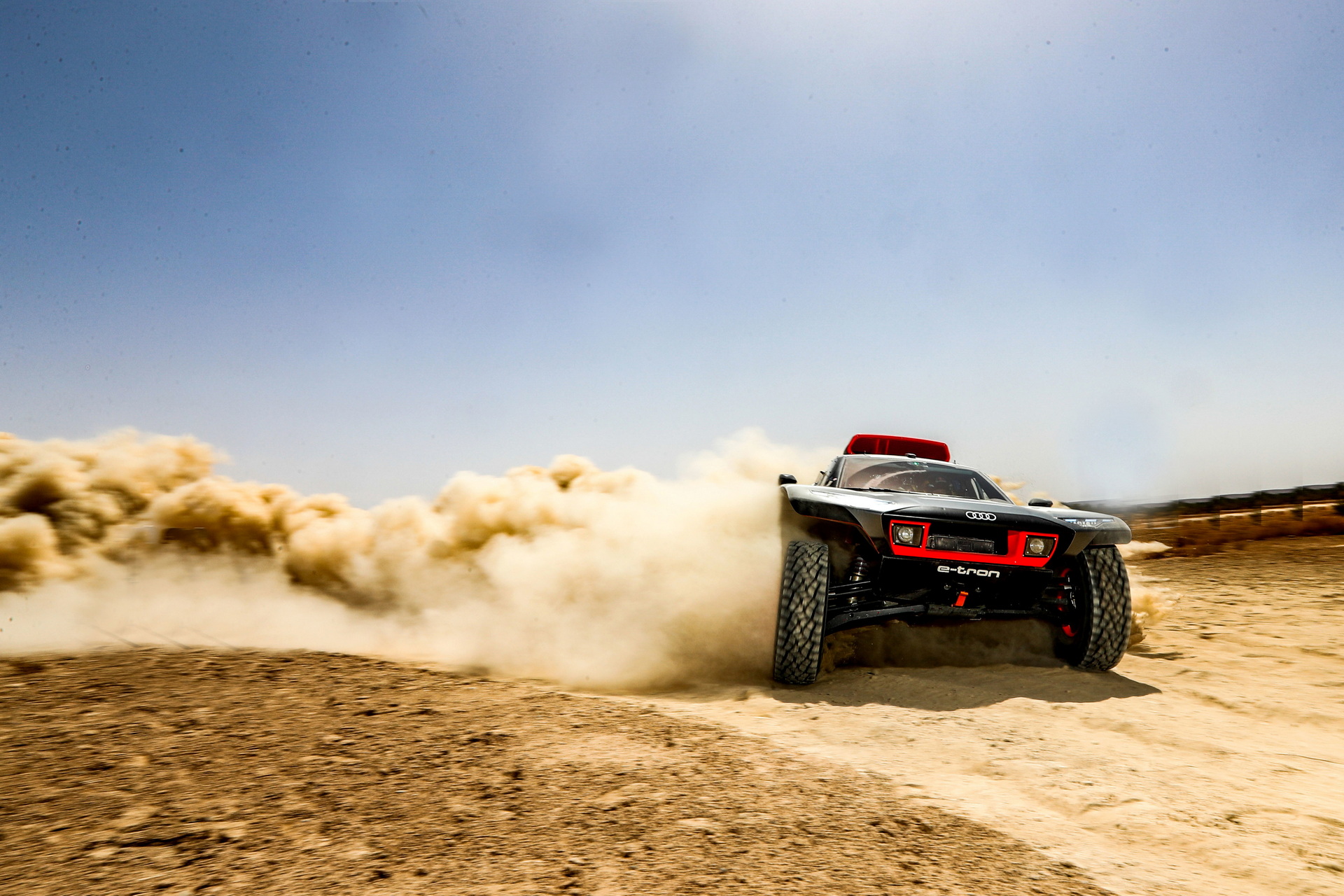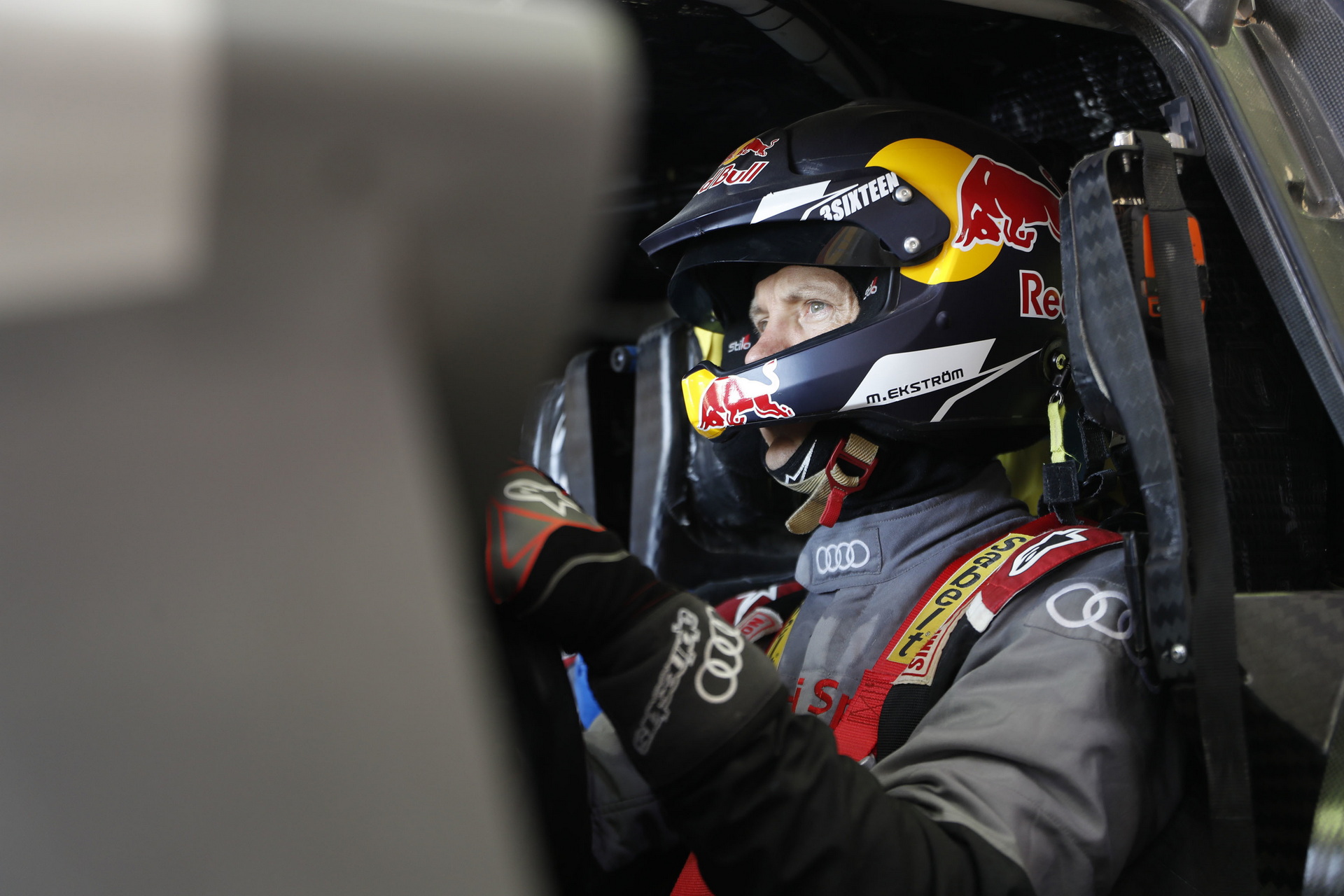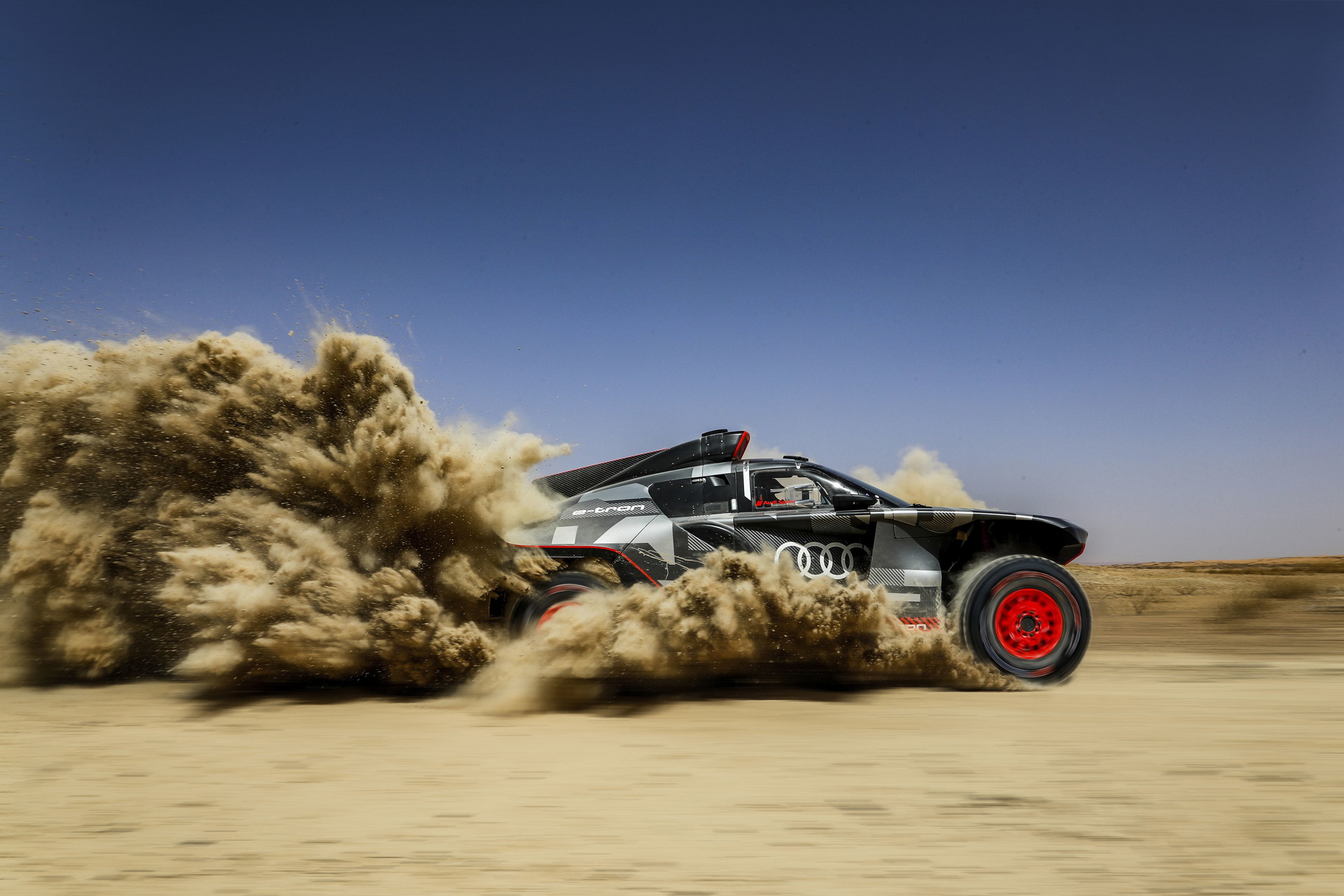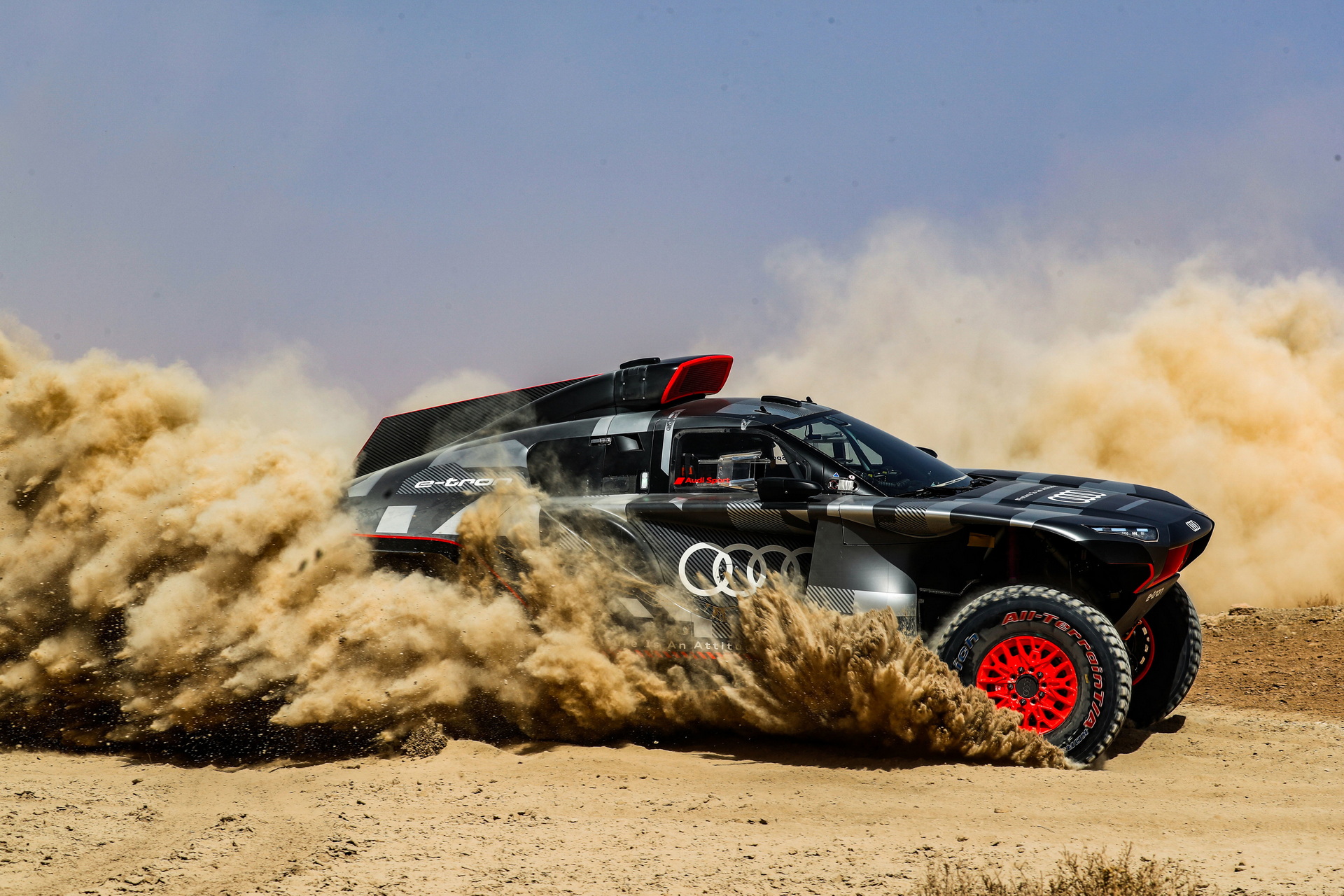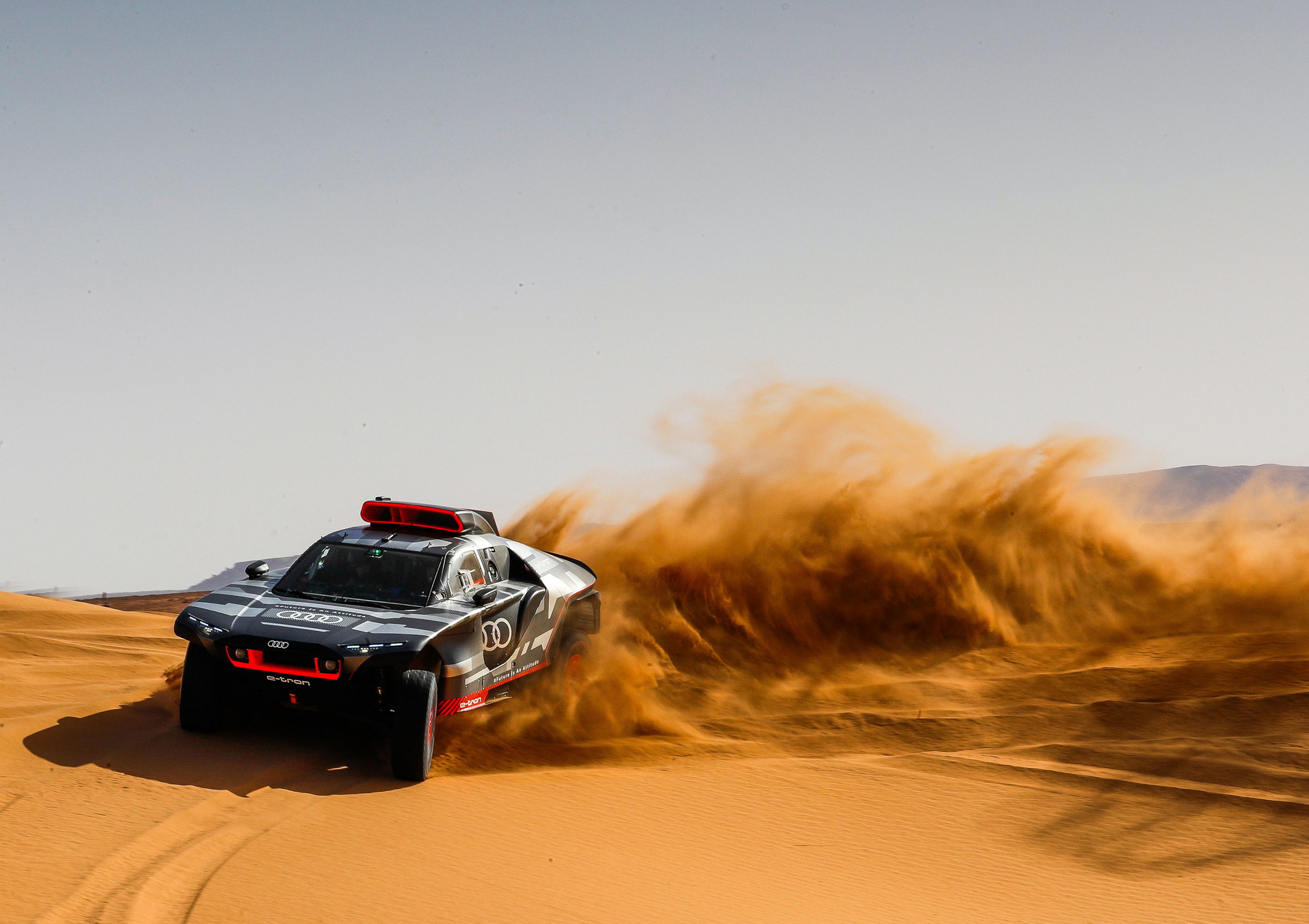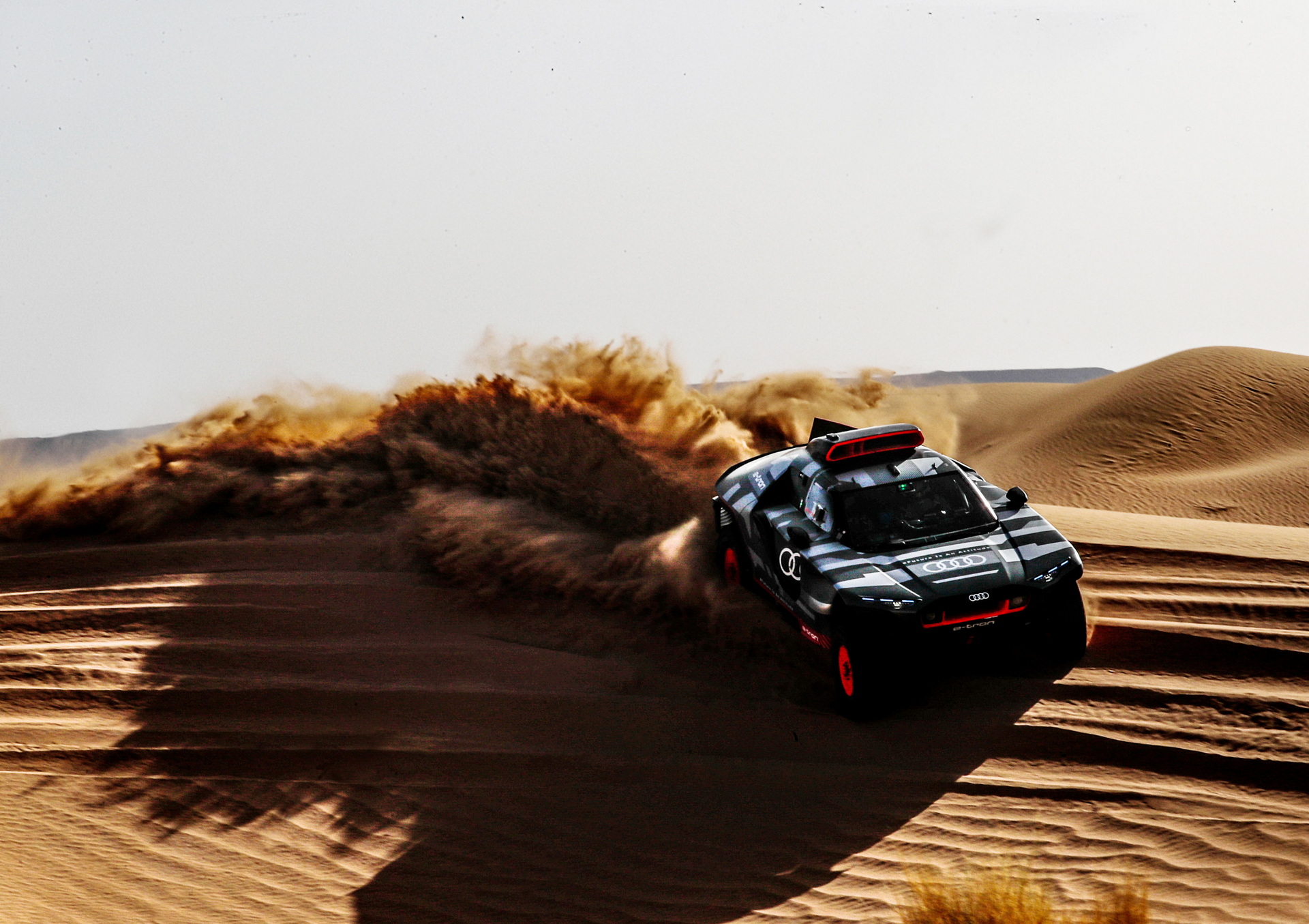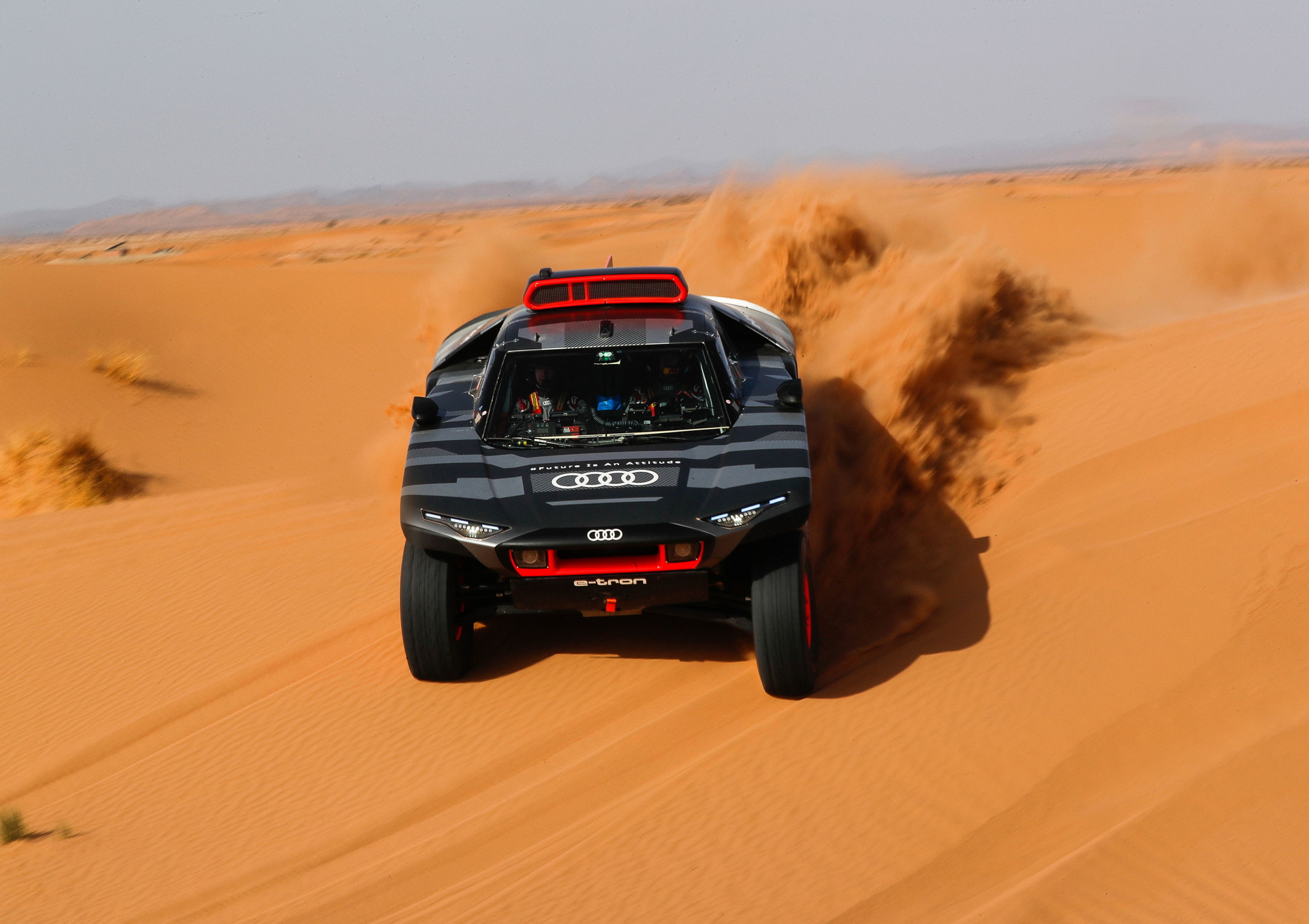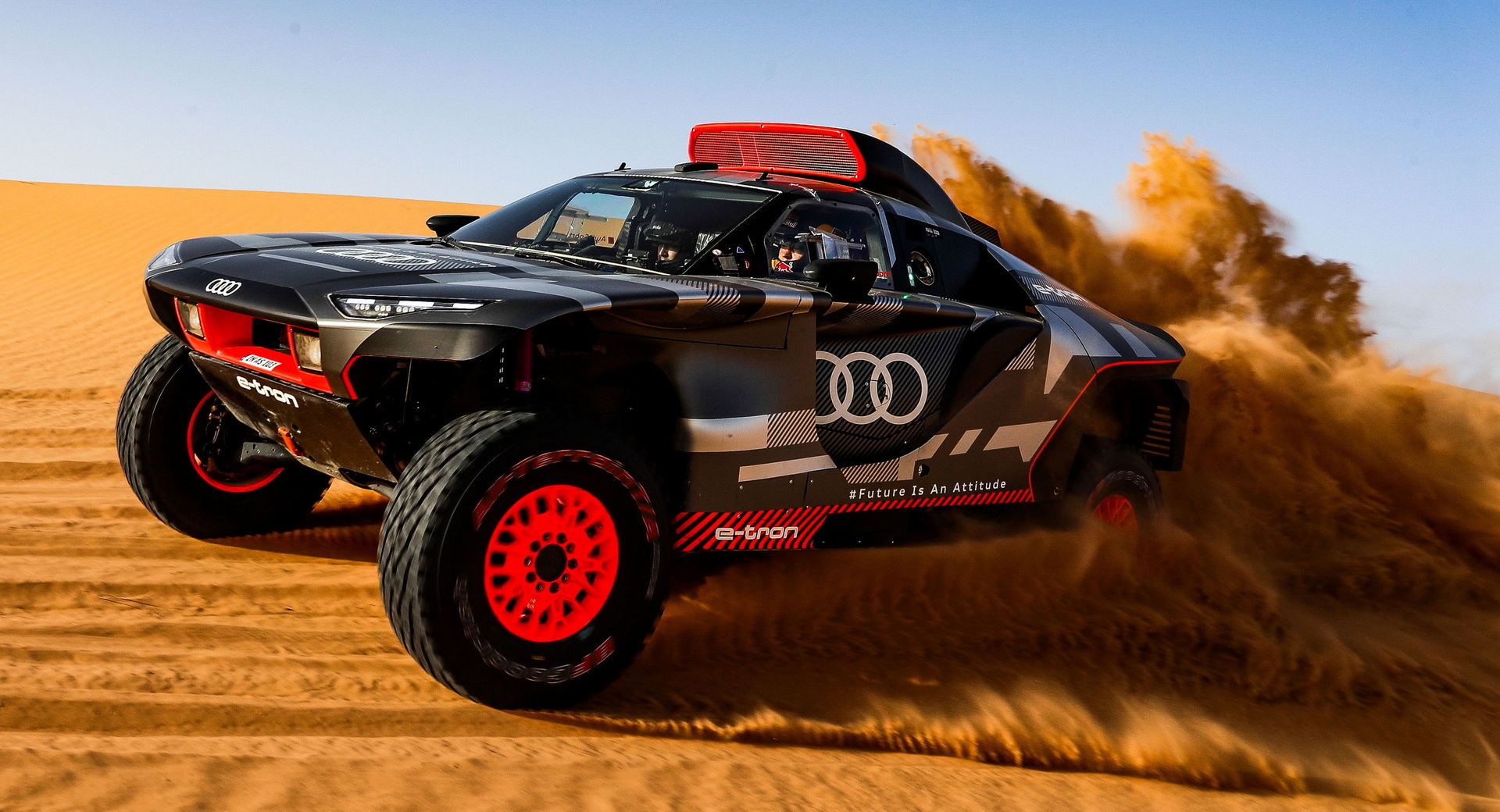Testing of the Audi RS Q e-tron is still underway ahead of its competition debut at the 2022 Dakar Rally. To prepare for the extreme weather and endurance challenge of the famed rally, Audi went to Morocco.
The team encountered extreme temperatures that were higher than they expect for the Dakar rally, which is being held from January 2-14, 2022. Despite that, the conditions gave the team a lot to think about.
“The thermometer climbed to well over 40 degrees Celsius [104° F] at times,” says Sven Quandt, team principal of Q Motorsport. “Sandstorms also hampered the testing. In addition, as expected, some new problems arose in the high temperatures, which repeatedly caused interruptions to the testing and needed to be solved before the next test.”
Read Also: Audi RS Q e-tron Revealed For The Dakar Rally, Features Electrified Powertrain With 671 HP
The idea behind the tests was, of course, to push the all-electric SUV to its limits in the Moroccan test.
“The drivetrain and other components were also pushed to their limits or even beyond by the heat,” said Andreas Roos, head of factory racing efforts at Audi Sport. “The insights we gained in Morocco are invaluable, but they also show us that we still have a lot to do before the Dakar Rally and there is not much time left.”
Roos went on to say that the overriding lesson learned in Morocco was that temperature management will be crucially important. Keeping the battery in its optimal temperature range will be essential, not just for endurance, but in order to be able to call on the electric motors’ maximum performance.
“This is where we are learning with every test. And that’s exactly why we are going to the desert with an electrified drivetrain: We are gaining an incredible amount of experience that we are sharing with our colleagues from road car development.”
The test wasn’t all about testing the endurance of the machinery, though. The drivers and co-drivers were also invited to give feedback on the RS Q e-tron and their own comfort within the vehicle.
“This was one of many topics we had on our to-do list after the test in Zaragoza,” says Roos. “For the test in Morocco, we made modifications so that the driver and co-driver have more space in the tight cockpit and can also communicate better with each other. The feedback was positive.”
As these tests are being run, Audi is in the process of building the first competition vehicle, chassis number 104. Powered by two motors from Audi’s Formula E car, energy comes from a newly developed Audi Sport battery which is charged by a TFSI engine from Audi’s DTM racer, which acts as a generator.




